

ALSO IN THIS ISSUE State of the Cities Report Local Government Spring Conference State Shared Revenue Report The Magazine of the League of Oregon Cities Q1 2024 Local Focus The 2024 Session is Here What Cities Need to Know

Your All-in-One Solution: That’s the CIS Difference
provides
that help
experienced
management,
to name just a few.
risk management | Comprehensive benefits programs | Expert claims processing | Innovative trainings | Strong Property/Casualty coverages For more information contact Bill LaMarche, CIS member relations manager, at blamarche@cisoregon.org.
CIS
tools
our members thrive:
risk
comprehensive benefits programs, claims processing, workers’ comp services, and liability, auto, and property coverage
Experienced
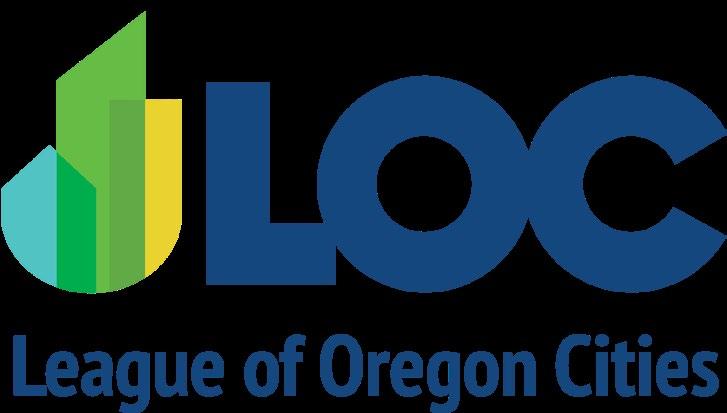

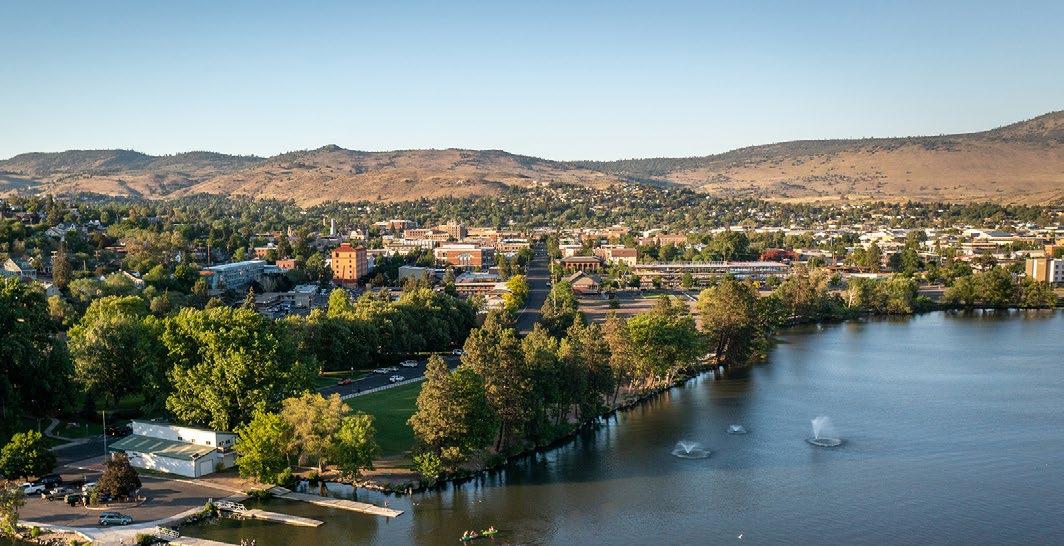

FIRST QUARTER 2024 The Magazine of the LOC 44 2024 STATE SHARED REVENUES LOC SPRING CONFERENCE 7 3 www.orcities.org First Quarter 2024 | LOCAL FOCUS ON THE COVER OTHER FEATURES 18 AT THE LEAGUE 2024 Legislative Session is Here Oregon’s Higher Courts End Recreational Immunity for Improved Trails National League of Cities’ Conference Offers Opportunities for Learning, Sharing Lessons Local Focus 5 A Message from the LOC President 7 Spring Conference in Klamath Falls 8 Meet the LOC Board of Directors 16 SEI Update 18 22 25 28 Policy Committees to Begin Meeting in March After ‘Significant Shift’ in Process 30 Oregon Youth Summit Provides Forum for Teens to Discuss Pressing Issues, Solutions 34 2024 State of the Cities 39 Budgeting Basics 44 2024 State Shared Revenues 49 Around the State – City Stories: Jacksonville, Tillamook, Boardman, Salem and Nyssa
Did you know?
• Over 240,000 water main breaks occur each year in the U.S.*
• 78% of homeowners surveyed believe their municipality should educate them on repairs and preventative measures** NLC
• Educates homeowners about their service line responsibilities
• Provides solutions that help address aging residential infrastructure
• Offers affordable plans to protect homeowners from the high cost of service line repairs
• No cost to the city

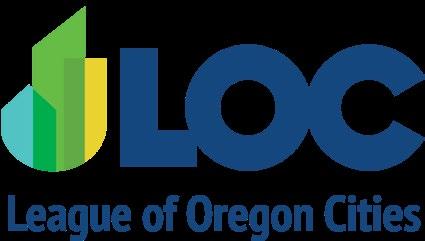
2024
President
Dave Drotzmann, Mayor, Hermiston
Vice President
Jessica Engleke, Mayor, North Bend
Treasurer
Travis Stovall, Mayor, Gresham
Immediate Past President
Steve Callaway, Mayor, Hillsboro DIRECTORS
Carol Beatty, Mayor, Maupin
Robert Cowie, Councilor, Chiloquin
Rod Cross, Mayor, Toledo
Aaron Cubic, City Manager, Grants Pass
David Emami, Councilor, Happy Valley
Roberto Escobedo, Councilor, Nyssa
Carol MacInnes, Councilor, Fossil
McKennon McDonald, Councilor, Pendleton
Tita Montero, Councilor, Seaside
Rochelle Roaden, City Manager, Dayton
Tim Rosener, Mayor, Sherwood
Chalice Savage, Councilor, Cottage Grove
Kenna West, City Manager, Independence
Ted Wheeler, Mayor, Portland
* https://www.infrastructurereportcard.org
** 2017 IPSOS Survey of HomeServe policyholders and non-policyholders
Kevin Toon, ktoon@orcities.org Designer
Julie Oke, jmoke@orcities.org
Contributing Writer
Melody Finnemore, precisionpdx@comcast.net
Non-member


Educating residents together.
Dennis
•
Dennis.Lyon@HomeServeUSA.com 412-266-9545 • www.servicelinepartner.com
Contact:
Lyon
Regional Director
Service Line Warranty Program: Join the more than 850 partners that
have chosen to work with us to help protect their homeowners.
4 | First Quarter 2024 www.orcities.org
subscription rate:
$96 per year
views expressed in Local
reflect
by the League
unless specifically
such.
any
should
be considered
the
involved.
Published articles and
Focus do not
any direct or implied endorsement
of Oregon Cities
stated as
Publication of
advertisement
not
an endorsement of
product or service
MAGAZINE STAFF Editor
LOC BOARD OF DIRECTORS OFFICERS
Local Focus is published quarterly by: League of Oregon Cities 1201 Court St. NE, #200 Salem, Oregon 97301 (503) 588-6550 • Fax: (503) 399-4863 www.orcities.org Local Focus
From the LOC President
It’s my honor to serve as your LOC President this year. I want to first thank my predecessor, Hillsboro Mayor Steve Callaway, for his leadership, friendship, and most importantly blazing the path we all have the privilege to walk on. It’s always challenging to follow a leader who has set the bar so high, but I will do my best. I first became involved with the LOC in 2018, and have had the privilege of serving on multiple committees, including Legislative, Tax & Finance, Strategic Planning, and as a founding member of the Diversity, Equity, Inclusion and Accessibility Committee. This work has made me a better leader, a more informed mayor, and a better-connected representative for my city. Overall, I’ve come away with much more from these experiences than I ever gave, and I’m grateful for that.
I tell you this because I want to encourage you to join us in our advocacy efforts as a representative of your unique community. We are a better organization with you as a part of it, and we need your voice to be heard as part of our conversations with legislators during the short session. I’m still a business owner and a full-time practitioner in my eyecare practice. I live four hours from Salem, but am still able to participate in most meetings. This is primarily because technology continues to improve and now most meetings can be attended virtually with equal participation by members from across the state. So, whether you live in Ontario, Central Point, North Bend, Hillsboro or Hermiston, you can participate. The one thing I can promise is that by participating in the LOC you will meet some amazing, caring people just like you. No matter how big or small your city is, we all have similar struggles and challenges that face each and every one of us. The LOC is an amazing peer support group that allows you to be the best elected or appointed official that your city and constituents deserve to have representing them. And who knows—maybe you’ll meet some new friends that may become some of your best friends. I did, and I’ll cherish those relationships for the rest of my life.
Over the course of this year, I’ll be travelling to every region in the state to learn more about you and your city’s needs as part of the LOC’s Regional Meetings. I hope you attend one of these meetings, as well as our upcoming Spring Conference in Klamath Falls. Please feel free to introduce yourself to me at one of these functions and tell me how we are doing. I can tell you that the number one priority your LOC Board of Directors wants most is to know that the work we do at the LOC is worth the dues that you are paying. As an organization, we try everyday to earn your trust and prove our value. We have an amazing executive director in Patty Mullvihill, a leadership team that passionately cares about what we do in cities, and a team of talented staff members that work hard for you every day.
Lastly, I’ll leave you with this. We know financially our cities are hurting. If it isn’t your biggest concern as an elected leader now, it soon will be. We’ve reached the precipice where our expenses
are outpacing our revenues. As a city leader, you were elected to fix problems, balance budgets, be accountable and transparent and overall make your city a better place for your families to live. None of us enjoy the painful conversations around cutting programs or services. And too often in our cities today, those are the conversations we are faced with.
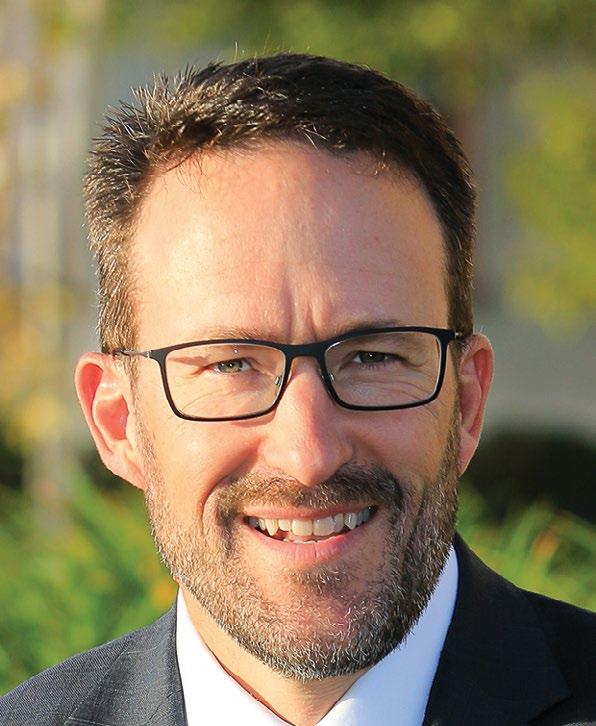 Dave Drotzmann
LOC President; Mayor, Hermiston
Dave Drotzmann
LOC President; Mayor, Hermiston
It is my mission this next year as I travel around the state to hear your stories, to work with you, your cities and our statewide partners to find solutions to the challenges that face our constituents so we can reframe the conversation from what do we cut next to what could we do more to make my city and state a better place to live, work and play. I look forward to the conversations we will have!

Below market rate financing for wastewater and stormwater treatment
We offer public agencies low cost loans for projects that prevent or mitigate water pollution. Includes easements, land purchase, new or upgraded facilities, sewers, planning and more. FREE technical assistance.
(503) 229-LOAN
CWSRFinfo@deq.state.or.us
Visit our website: oregon.gov/deq/wq/cwsrf


FROM THE PRESIDENT
5 www.orcities.org First Quarter 2024 | LOCAL FOCUS
At the League From the Executive Director Doing More with Less Needs to Change
Doing more with less is not a badge of honor cities wear with pride. Budget deficits, revenue limitations, emerging social challenges, inflationary increases, and aging infrastructure have forced city leaders into the unenviable position of having to decide which fundamental city service is a bit less important than every other fundamental city service, all in the name of passing a balanced budget. The expectation that Oregon cities continue to do more with less needs to change.
Numerous cities across Oregon are facing budget shortfalls, which has resulted in cities limiting the services they provide and considering revenue alternatives. Of the 76 cities which recently completed a municipal finance survey, 36% reported experiencing an average budget deficit of 11.7%. The budget deficits have necessitated cuts to essential services and programs, including cuts to public safety budgets. Given the limitations cities face on property taxes as a result of Measures 5 and 50, city leaders are actively exploring a myriad of revenue alternatives to address increasing financial constraints, including increasing utility charges, adjusting business licenses, introducing specific fees, and imposing special operating levies—none of which is ideal.
The LOC has long recognized that its 241 member cities cannot continue to meet their obligations to residents and business owners within current revenue streams. As a member services entity designed to support and uplift its members, the LOC is working to assist Oregon cities as they face revenue challenges in two keys ways. First, the LOC is actively working to secure state funding for needed services. Second, the LOC is taking steps to better understand the full revenue picture Oregon municipalities face so that it can work with interested partners to develop creative solutions to achieve needed fiscal stabilization.
The LOC’s overall advocacy effort is moving the Legislature closer to recognizing the importance of local community investments. During the 2023 session, the LOC was able to help secure funding to: spur economic development, address the dual crises of housing and homelessness, stabilize transportation needs, and support water-related investments.
• Housing and Homelessness. A variety of different funding mechanisms were enacted, including:
à $5 million for Oregon’s statewide network of councils of government and economic development districts to support housing and community development capacity within cities and counties;
à $15.7 million in grant funding for local governments to support general comprehensive plan updates, housing and urbanization updates, middle housing code updates for small cities, implement the Climate Friendly and Equitable Communities program, and community green infrastructure programs;
à $721.7 million for Oregon Housing & Community Service programs that support the development and preservation
of affordable housing, including permanent supportive housing and rural affordable homeownership development; and $349.6 million to help address the homelessness crisis.
• Water-Related Investments. The 2023 Drought Package and related investments, which brought $320 million to the table, will support the Special Public Works Fund, provide more than $30 million in direct funding for city-specific water and wastewater projects, and enhance the Place-Based Water Planning Fund.
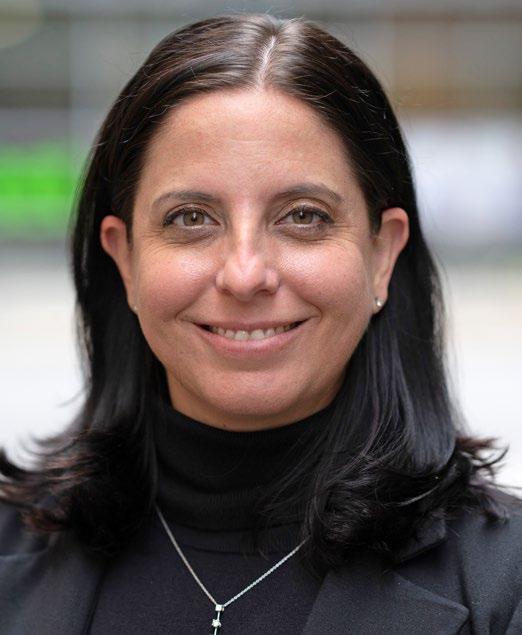
• Transportation Funding. The passage of House Bill 2101 provided $35 million in revenue to stabilize the fund exchange program within the Oregon Department of Transportation, a program that is important to more than 40 cities and 31 counties.
• Economic Development. With the passage of Senate Bill 4, the Oregon Chips Act advanced, securing $210 million in overall funding, with $10 million for industrial site readiness. All of this is expected to incentivize more than $40 billion in semiconductor investments and more than 6,300 jobs.
In 2024, the LOC is taking several active steps to understand the full revenue picture Oregon cities are facing, with a goal of developing a path towards stabilization:
• Presidential Meetings. LOC President and Hermiston Mayor Dave Drotzmann will host a meeting in all 12 regions of the state. The purpose of these meetings is to hear from cities about their revenue struggles, the solutions they have developed to address funding gaps to support needed services, and to identify the assistance they need from the LOC.
• Advocacy. LOC lobbyists continue to work with state leaders to financially support essential city services, from loans and grants, to direct funding.
• Case Studies. In collaboration with cities from across Oregon, the LOC is developing case studies and stories that show the full picture of revenue limitations, funding shortfalls, and the impacts both have on a city’s ability to provide the full programming and services needed to support residents and businesses.
No one knows better than the LOC that cities cannot continue to be expected to do more with less. The LOC is committed to partnering with cities and other entities to understand the revenue challenges facing Oregon local governments, and develop pathways to financial stabilization.
6 | First Quarter 2024 www.orcities.org
Patty Mulvihill LOC Executive Director

Register for the Local Government Spring Conference in Klamath Falls
The LOC is excited to bring the 2024 Local Government Spring Conference to Klamath Falls on April 25-26. This two-day event will be a great opportunity for public officials from across Oregon to network and learn about issues impacting all cities.
Preliminary Agenda
Thursday, April 25
8:30 a.m. – 11:30 a.m. Mayors Workshop –Part 1: City Charter Updates –Emerging Trends and Recommended Processes
Part 2: The Mayor’s Role in Communicating City Needs
8:30 a.m. – 11:30 a.m. Councilors Workshop
8:30 a.m. – 11:00 a.m. Managers Workshop –Planning for & Recovering from an Emergency
11:30 a.m. – 12:00 p.m. Networking Break
12:00 p.m. – 1:30 p.m. Welcome Lunch & Keynote –Policing with Compassion During the Addiction Crisis
1:30 p.m. – 2:00 p.m. Networking Break
2:00 p.m. – 3:00 p.m. Breakout Sessions
• Expectations for Women Elected Officials
• Wildfire Resilience and Community Risk Reduction
3:00 p.m. – 3:30 p.m. Networking Break
3:30 p.m. – 4:30 p.m. Breakout Sessions
• How to Collaborate with Your Local Tribes
• Public Safety Financing: Levies, Fees and Contracts, Oh My!
4:45 p.m. - 6:15 p.m. Networking Reception
6:15 p.m. Dinner on your own
8:30 p.m. - 10:30 p.m. Reception Hosted by Caucuses
Hotel Information
Friday, April 26
7:30 a.m. – 8:30 a.m. Networking Breakfast
8:30 a.m. – 10:00 a.m. General Session – Agency Directors Roundtable
10:00 a.m. – 10:30 a.m. Networking Break
10:30 a.m. – 11:30 a.m. Breakout Sessions
• Rural Resources: Grants & Funding Opportunities
• OHCA Affordable Housing Resources Update
11:30 a.m. – 11:45 a.m. Networking Break
11:45 a.m. – 1:15 p.m
Lunch & General Session –From the Ground Up: Leveraging the Power of Regional Coordination to Meet Oregon’s Housing Goals
1:15 p.m. – 1:45 p.m. Networking Break
1:45 p.m. - 2:45 p.m. Breakout Sessions
• A Conversation with State Legislative Water Caucus Co-Chairs
• Leading Communities as a Person of Color
2:45 p.m. - 3:00 p.m. Networking Break
3:00 p.m. – 4:30 p.m.
General Session – Measure 110 - The Role of Cities in Implementing Oregon’s Updated Addiction Response
5:00 p.m. – 6:30 p.m. Happy Hour Reception
6:30 p.m.
Dinner on your own
LOC has secured a block of rooms at several Klamath Falls hotels. Find booking information on the Spring Conference website at www.orcities.org
Register Now
Register at www.orcities.org. The cost is $300 for LOC members if registered before April 4. Space is limited so register now!
AT THE LEAGUE
7 www.orcities.org First Quarter 2024 | LOCAL FOCUS
Meet the 2024 LOC Board of Directors
OFFICERS
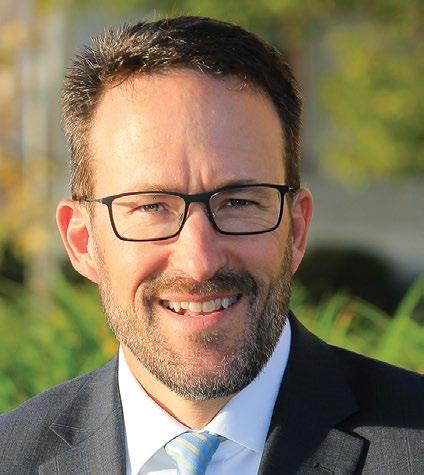
Dave Drotzmann was elected mayor of the Hermiston City Council in 2012. He previously served on the LOC Board of Directors from 20172019 and was recognized as the League’s legislative advocate of the year in 2019. Prior to his city council service, Mayor Drotzmann served eight years on the Hermiston School District Board of Directors. He’s been actively involved for years with multiple community organizations, including the Hermiston Chamber of Commerce, Rotary, and the Hermiston Booster Club, as well as a coach of youth and high school sports programs. Dr. Drotzmann currently sits on the editorial team for The Oregon Way and is a partner in an eyecare practice in Hermiston.
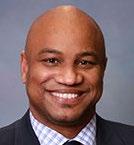
Mayor Stovall was elected mayor of Gresham in 2021. He makes history as the first Black mayor of any large city in the Portland metro area and across the state. A longtime Gresham resident, Mayor Stovall is the owner and CEO of eRep, Inc. He also serves as vice president of the TriMet Board of Directors and has been featured in The Oregonian for his dynamic leadership when serving as president of the Gresham Area Chamber of Commerce and Visitors Center. Mayor Stovall’s lengthy history of volunteer service in local government includes the Gresham Community Development and Housing Subcommittee; as chair of the city’s Charter Review Committee; and the Gresham Task Force on Housing to help create affordable housing units.
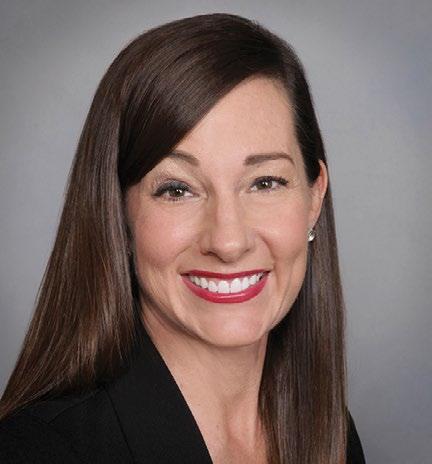
Mayor Engelke was elected as North Bend’s first female mayor in November 2020. She is a longtime North Bend resident, invested in making Oregon’s south coast a better place. Mayor Engelke is a tenured business professor at Southwestern Oregon Community College and teaches a variety of business classes. She has more than 25 years of hands-on experience in the business community and is a former president of the Bay Area Chamber of Commerce.
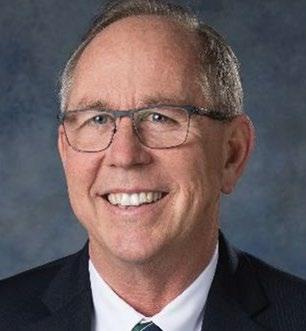
Mayor Callaway was elected to th e Hillsboro City Council in November 2010, re-elected in 2014, and became mayor in 2016. His previous experience includes the city’s budget committee, the Hillsboro 2020 Vision Implementation Committee and the city’s planning commission. Additional community involvement includes the Jackson Bottom Wetlands Preserve Board, the Hillsboro Library Foundation, the Boys and Girls Club, and the Hillsboro Schools Foundation. Mayor Callaway recently retired from his position as a principal at Tobias Elementary School in Hillsboro.
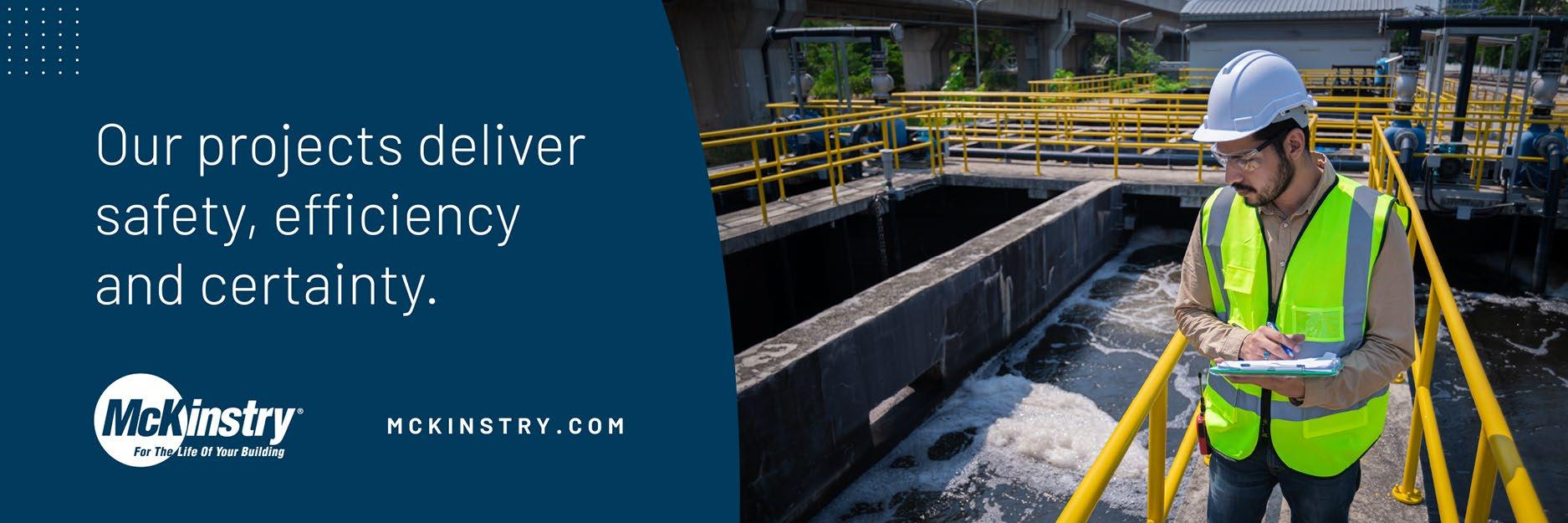
AT THE LEAGUE AT THE LEAGUE 8 | First Quarter 2024 www.orcities.org
President Dr. Dave Drotzmann Mayor, Hermiston
Vice President Jessica Engelke Mayor, North Bend
Treasurer Travis Stovall Mayor, Gresham
Immediate Past President Steve Callaway Mayor, Hillsboro
DIRECTORS
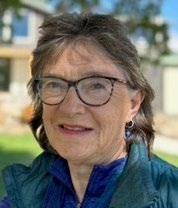
Prior to her election in January of 2023, Mayor Beatty served on the Maupin Planning Commission for two years and then served on the Maupin City Council for two years, filling in for a resignation. Her career in education spanned 30 years as an English teacher, a high school counselor, a high school assistant principal, and 10 years as a middle school principal. Mayor Beatty and her husband built their house in Maupin 23 years ago, as they were drawn to the area by the Deschutes River, white water rafting and fishing. They settled in Maupin full-time in 2017. (Nonvoting position)
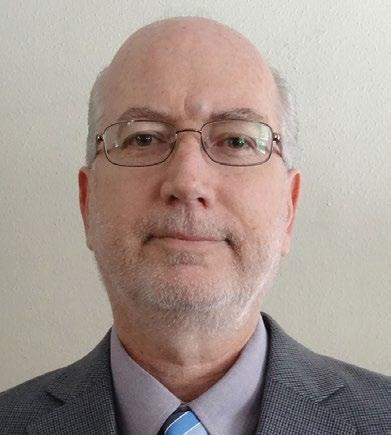
Elected in November 2020, Councilor Cowie is serving in public office for the first time. He worked for more than 20 years at Sony Electronics in many capacities, including VP of Customer Insight, VP of the VAIO Technology Center, Director of Engineering, Director of Product Q uality, and program management. His previous work experience also includes many years in the broadcast television and cable television industries. He currently is a customer experience consultant, helping businesses establish and grow their customer experience and employee engagement programs.
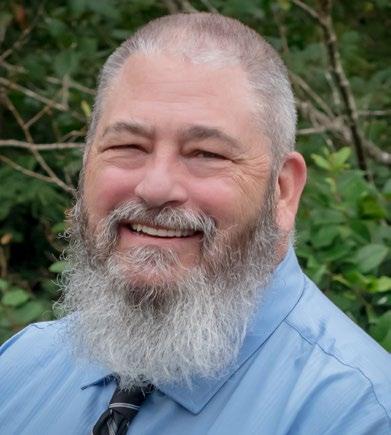
Mayor Cross has led the city of Toledo since 2018. He ran for mayor to restore stability and civility to the city, and believes his biggest accomplishment has been giving staff and citizens the tools to not just survive the recent pandemic but to thrive during it. Toledo has had more projects completed in the last two years than the previous several years, including launching the ART Toledo initiative, the urban renewal project, and coordinated efforts to improve the city of Toledo with its school system. Mayor Cross currently serves as the President-Elect of the Oregon Mayors Association.
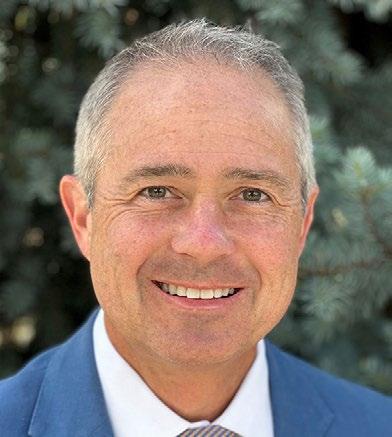
Mr. Cubic has 17 years’ experience serving as a city manager in Oregon. He was appointed city manager in Grants Pass in 2012, and previously had served as city manager in Myrtle Point. Mr. Cubic also has 10 years’ experience in county government as a program manager and special district director. In 2014, he served as president of the Oregon City/County Management Association (OCCMA) and has been a member of multiple OCCMA committees, including Finance & Taxation, General Government, and Human Resources. An International City/County Management Association Credentialed Manager, Mr. Cubic is a graduate of the University of Virginia’s Senior Executive Institute and the ICMA Williamsburg Leadership Institute.
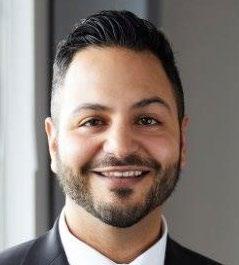
Councilor Emami was appointed to Happy Valley City Council in 2019 and elected to a four-year term in 2020. Prior to his appointment, he served on the Happy Valley Planning Commission, the Parks Advisory Committee, the Clackamas County Street Light Budget Committee and was president of his HOA. Councilor Emami previously served on the LOC Bylaws Committee. He also has extensive volunteer experience with local schools, state educational programs, local charities and non-profit organizations. Born and raised in Oregon, Councilor Emami earned his bachelor’s degree in economics from Oregon State University.
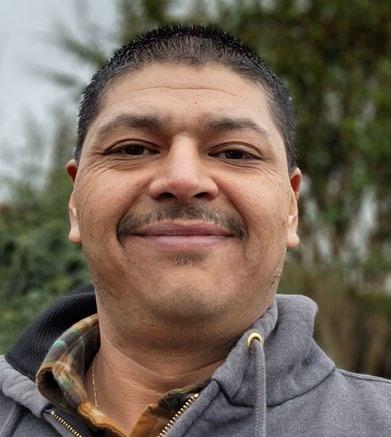
Councilor Escobedo was elected in 2020 and is a volunteer with the Nyssa City Fire Department. He is a native and current resident of Nyssa and the second oldest of six children. Councilor Escobedo currently works as a wildland firefighter for the Snake River Valley program through the U.S. Bureau of Land Management. At a young age, he learned the value of hard work while working in the summer with his family in the fields. These values have never left him, and he practices them daily. Councilor Escobedo is committed to working hard for the region he represents and to helping rural Oregon communities evolve and grow, with a particular focus on diversity and inclusion. (Non-voting position)
AT THE LEAGUE (continued on page 10) 9 www.orcities.org First Quarter 2024 | LOCAL FOCUS
Carol Beatty Mayor, Maupin
Rod Cross Mayor, Toledo
Aaron Cubic City Manager, Grants Pass
Robert Cowie Councilor, Chiloquin
Roberto Escobedo Councilor, Nyssa
David Emami Councilor, Happy Valley
2024 LOC BOARD OF DIRECTORS
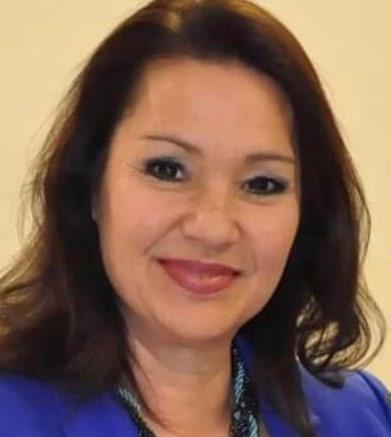
Councilor MacInnes has spent the past 30 years volunteering for her community through a broad range of service activities. She is currently an EMT-I for the local ambulance service, a reserve deputy for the sheriff’s office, and a medicolegal death investigator for the district attorney ’s office, all in addition to her paying job as a victim advocate for Wheeler County. Elected in 2014, she served eight years as mayor and was appointed to the city council in 2023 after not running for re-election. Councilor MacInnes previously served on the Oregon Mayors Association Board of Directors, representing all east side rural communities and was proud to be on the OMA Taskforce to address homelessness. (Non-voting position)
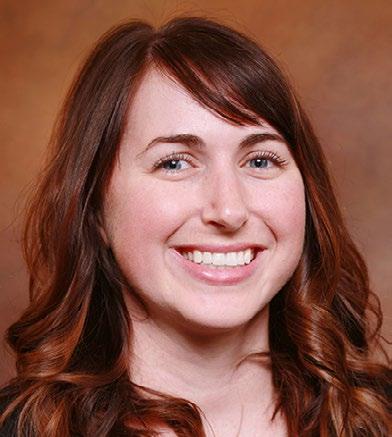
Councilor McDonald was elected to the Pendleton City Council in 2014 and was re-elected in 2022 for a third term. In addition to serving as Council President, she currently serves on the Pendleton Airport Commission, Development Commission, Library Board, and Budget Committee. Councilor McDonald has also previously served on the LOC Conference Planning Committee and the LOC Nominating Committee, and was recently elected to the LOC Women’s Caucus Board of Directors. Her commitments also include a full-time job with the InterMountain Education Service District, volunteering in the community in her free time, and being a wife and mother. She holds a bachelor’s degree in political science from the University of Portland, an M.A.T. from Eastern Oregon University, and most recently an Educational Administration degree from Lewis & Clark College.
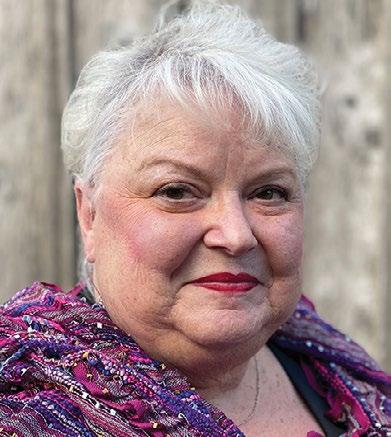
A resident of Seaside since 2002, Councilor Montero served six years on her city’s tourism board prior to being appointed and elected to the Seaside City Council in 2010. Having been reelected in 2014, 2018 and 2022, she is the longest-sitting elected city or county official in Clatsop County. Homelessness has been an important focus for her work. Her prior community commitments include serving on the boards of the Seaside Downtown Development Association, Clatsop Behavioral Health, Clatsop CASA and Clatsop Development Resources, as well as serving as president of the Seaside Chamber of Commerce. She currently serves on the Clatsop County Budget Committee, the Senior Advisory
Council for Northwest Disabilities and Senior Services, and the Clatsop Citizen Review Board. Councilor Montero holds a bachelor’s degree in recreation administration and a master’s degree in library sciences, and her professional work includes health system and health plan executive management, and serving as executive director for Seaside Downtown Development Association. Councilor Montero assisted in the establishment of the LOC Women’s Caucus and currently serves as its president.
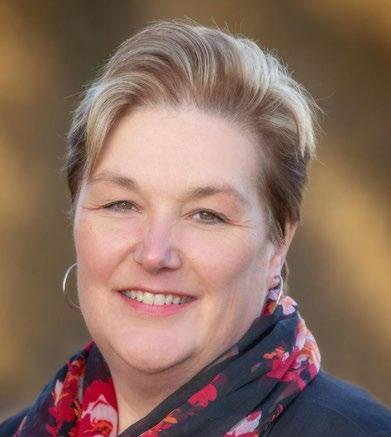
Ms. Roaden, a seasoned professional with a bachelor’s degree in business administration from Pacific University, boasts a rich background of more than 25 years in accounting/finance. Her professional journey includes impactful roles at Walt Disney Imagineering in Florida and California, showcasing her expertise and dedication. In 2005, she returned to Oregon to raise her daughter closer to family, and her commitment to community service led her to Dayton, where she initially served as the city recorder/finance director in 2015. Since 2018, Ms. Roaden has served as city manager, often humorously remarking that she finally found what she wanted to be when she grew up. Beyond her role in city leadership, Rochelle actively contributes to various community organizations. She serves on the Yamhill County Affordable Housing Corporation Board of Directors, the Y-COM Board of Directors as the small city representative, and the Chemeketa Regional Library Service Advisory Council as the small city representative. Additionally, she is a proud member of the McMinnville Sunrise Rotary.
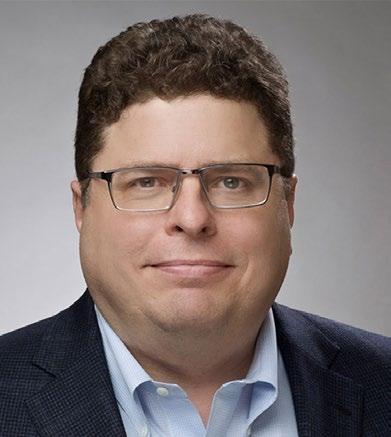
Mayor Rosener was initially appointed to fill a vacant council seat and went on to win a special election and a subsequent general election. He now serves a twoyear term that expires in January of 2025. Mayor Rosener has a passion for local government and currently serves as the chair of the LOC’s Broadband and Telecommunications Policy Committee, as well as the Oregon Broadband Advisory Council. As a leader in the U.S. Air Force, and later as a small business owner, the majority of Mayor Rosener’s 33-year career focused on delivering innovative technology and consulting services to more than 900 local governments across the United States. He provided software solutions that helped cities with everything from running finance and payroll to planning and zoning, infrastructure asset management, utility billing, permitting, and community outreach/ engagement. His current focus is on giving back to his community, and he enjoys leveraging all he has learned in his career to help his hometown move forward.
Carol MacInnes Councilor, Fossil
Tita Montero Councilor, Seaside
Rochelle Roaden City Manager, Dayton
AT THE LEAGUE
McKennon McDonald Councilor, Pendleton
10 | First Quarter 2024 www.orcities.org
Tim Rosener Mayor, Sherwood

Councilor Savage has served on the Cottage Grove council since 2021. She previously spent nearly 15 years in the medical field, and currently works as an independent contractor with Blackstone, Inc. Councilor Savage also owns her own photography business.
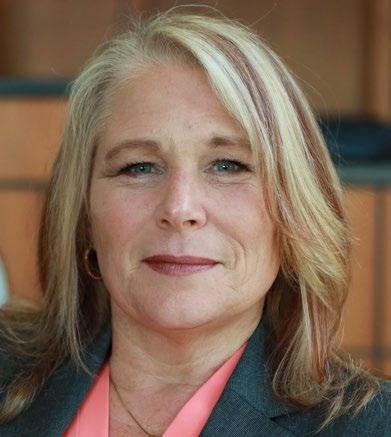
Ms. West is a native Oregonian with her roots firmly planted in rural towns. She has served the city of Independence since May 2022. She previously served the cities of Willamina and Salem and Marion County for more than a decade. Ms. West came to government service following a career as a lawyer. She holds a juris doctorate from Northwestern School of Law at Lewis and Clark College, Kenna West City Manager, Independence and was in private practice for more than a decade. Along with her love of community, she is also passionate about equine rescue and care. When she isn’t serving her beautiful city of Independence, her energy is focused on helping abused and neglected horses, and training and racing her barrel horses.

Mayor Wheeler has led the city of Portland since 2017. He was elected chair of Multnomah County in 2006 and took office in 2007, where he balanced the county budget during the worst years of the recession and reduced debt while maintaining safety net programs for vulnerable populations. Mayor Wheeler was then appointed to the office of Oregon State Treasurer in 2010 and elected Ted Wheeler Mayor, Portland to the position in 2012. He earned an undergraduate degree in economics from Stanford University, and later received an MBA from Columbia University’s business school, as well as a master’s degree in public policy from Harvard University’s John F. Kennedy School of Government.
Request Printed Copies of the Local Focus
The Local Focus magazine is distributed quarterly via email. Printed copies are available by request. To opt-in to receive a printed copy in the mail, fill out the form at the link below.
Opt-In for a Printed Copy (bit.ly/3F22xSp)
LOC Board of Directors
Meets in North Bend
The LOC Board of Directors met in North Bend on December 15 and took the following actions:
• Conducted an annual performance evaluation of the executive director and found the executive director to be exceeding expectations. The LOC Executive Committee will convene prior to the February 22, 2024, LOC Board meeting to develop goals and performance metrics for the executive director.
• Approved a membership dues increase for FY 2024-25 of 2%.
• Amended the LOC Bylaws as recommended by staff: removal of a clause in Section 2(a), “through the Nominating Committee process and a vote of the membership at the Annual Business Meeting” and replacing the language with, “by appointment of the President, subject to approval of the Board.”
• Adopted staff’s proposed amendment to the resolution that established the LOC Legislative Committee.
• Confirmed President Callaway’s appointment of Happy Valley Council President David Emami to serve a one-year term on the LOC Board, filling the vacancy created by Mayor Jessica Engelke’s election to Vice President in 2024. Councilor Emami’s term on the board will expire on December 31, 2024.
• Reappointed Sherwood Councilor Keith Mays, Cottage Grove Assistant City Manager Jake Boone, Tualatin City Manager Sherilyn Lombos and Hermiston City Manager Byron Smith to the LOC Foundation for terms expiring on December 31, 2025.
• Recommended Independence Mayor John McArdle to serve as the President of the LOC Foundation and LOC Executive Director Patty Mulvihill to serve as Secretary.
Contact: Jasmine Jones, Administrative Assistant – jajones@ orcities.org
•
•
•
AT THE LEAGUE 2024 LOC Board of Directors Meetings • April 24 – 9 a.m. - 4 p.m., Klamath Falls
June 21 – 9 a.m. - 4 p.m., Joseph
October 16 – 9 a.m. - 2 p.m., Bend
December 13 – 9 a.m. - 4 p.m., Hermiston
11 www.orcities.org First Quarter 2024 | LOCAL FOCUS
Chalice Savage Councilor, Cottage Grove

Inaugural Board/Staff Retreat Fosters Connections in North Bend
When North Bend Mayor Jessica Engelke heard that the LOC wanted to host its inaugural board of directors/staff retreat in her city, she saw an invaluable opportunity to celebrate everything that makes her community unique, attractive and a place where people should come to visit.
“I was so honored that President (Steve) Callaway had picked North Bend for this final board meeting of his and also for the staff retreat,” said Engelke, who is also the LOC’s 2024 Vice President. “We have so many neat things that happen in our region and especially in December. I loved that we had all these people on the board from different regions come out to the coast and we got to show them that.”
Held December 14-15, the retreat kicked off with ice skating and dinner at a local restaurant that utilized a façade grant from the city and is an essential piece of its Main Street revitalization efforts.
Engelke said funding for the 3,250-square-foot synthetic iceskating rink came from North Bend’s transient lodging tax and is an attraction that draws people downtown. Enclosed in a 5,000-squarefoot event tent, the synthetic ice carries lower maintenance costs and provides a better grip for skaters.
After dinner, the group went for a viewing of the holiday lights at Shores Acres State Park. The attraction features sculpture displays designed to reflect the coastal setting and is illuminated by more than 325,000 LED lights. Engelke said the display has been recognized nationally as one of the top 10 activities to do during the holiday season.
North Bend’s Liberty Theatre hosted the LOC Board meeting and staff training the next day, and Engelke ensured that the board literally took center stage. Once a target for demolition, the renovated theater is celebrating its 100th anniversary this year and has helped to transform downtown. It recently was added to the National Register of Historic Places.
A local food truck delivered lunch and a nearby bakery provided dessert. Engelke said it was important to her to showcase as many of the city’s small businesses as possible and highlight their economic contributions.
“The hope is always that everybody on the board can learn from the different communities and see what is working and then take that back to their own communities,” she said.

AT THE LEAGUE 12 | First Quarter 2024 www.orcities.org
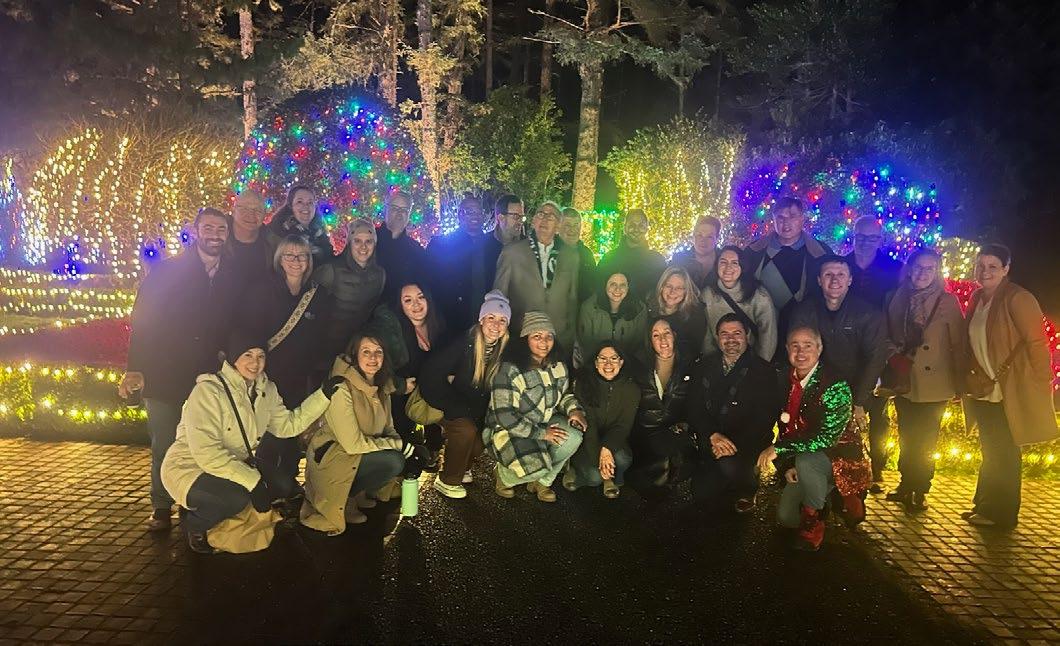
Hillsboro Mayor Steve Callaway, the LOC’s 2024 Immediate Past President, said the retreat was a good reminder that people share more in common than not.
“Society tends to focus on differences, and particularly political differences, but really there is so much more commonality and similarity than differences,” he said.
The gathering also emphasized the value of meeting together, talking in person and having more authentic engagement compared to Zoom meetings. And, as the LOC prepares to mark its 100th anniversary in 2025, the retreat offered an opportunity to look ahead to the next 100 years.
“The only reason any organization is around for 100 years is because people are committed to it, they communicate and they do the hard work and heavy lifting,” Callaway said. “This is a group of people who all love their cities and we love the organization, so it’s just good to come together.”
He added that he appreciated the chance to talk with staff, try new restaurants and support the local economy. “It’s always good to see a different part of the state and it’s a charming city,” he said.
Hermiston Mayor Dr. David Drotzmann, 2024 LOC President, noted, “I think anytime a board and staff can meet together to collaborate on the challenges and successes we face together, it’s always a positive.”

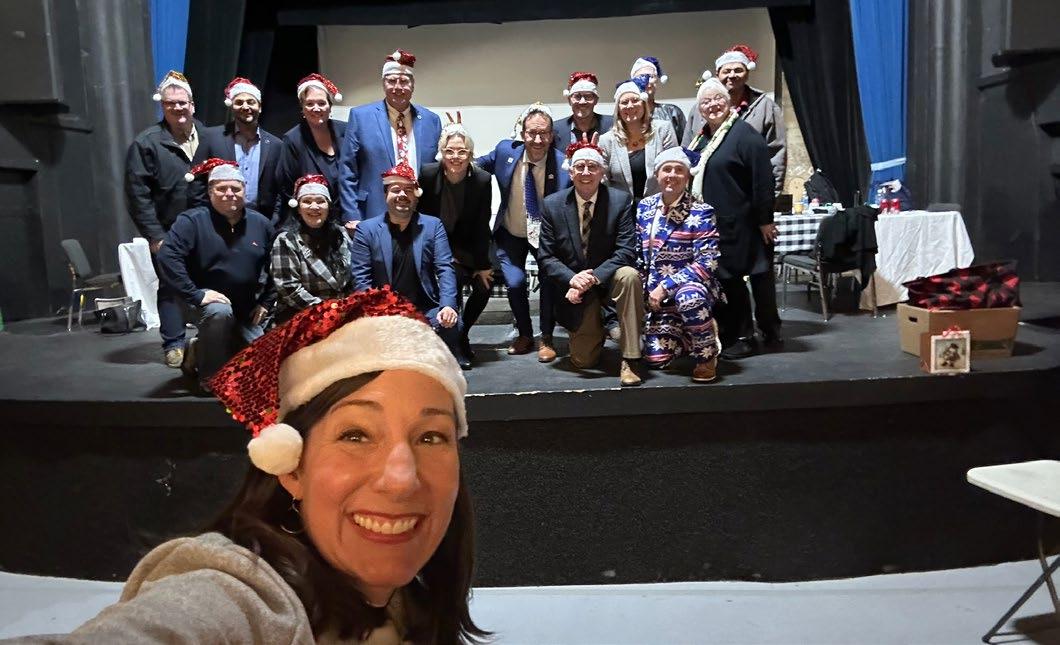
Dayton City Manager Rochelle Roaden, a new LOC Board member, said the orientation held for new members was a bonus for her. She also was touched by a gift from Callaway, who gave everyone a copy of “Stone Soup.” It’s one of his favorite books and illustrates that no one can succeed alone and it takes everyone to create a community.
“It was great to meet and get to know everyone,” Roaden said. “The orientation was really helpful and to get to see how the Board of Directors meets was very interesting. It was also nice to be with people from all over the state. You get to hear how things are going in their area, and it might be totally different from your area.”
Sherwood Mayor Tim Rosener, also a new board member, had already met several board members and staff through his work as chair of the LOC’s Broadband, Cybersecurity & Technology Policy Committee. He said he appreciated the onboarding process that took place during the retreat, led by LOC Executive Director Patty Mulvihill.
“Patty and her team and the board had a really well-thought-out onboarding process to bring me up to speed,” he said. “It was one of the best onboarding processes I’ve had and I’m a member of a lot of boards. We also have an amazing staff at the LOC that does great work on behalf of the organization and the board.”
LOC Women's Caucus Launches Podcast
The LOC Women's Caucus has launched a new podcast featuring Oregon women in government. The first-of-its-kind production will spotlight women who hold elected leadership and staff positions, and is entitled, "Her Own Wings," in honor of the state's motto, "She flies with her own wings."
Listen to the podcast on the LOC Women's Caucus page, Apple Podcasts or Spotify.
AT THE LEAGUE 13 www.orcities.org First Quarter 2024 | LOCAL FOCUS
City Deadline Calendar
Important statutory deadlines cities need to know
MARCH
March 1:
Budget: Budget Officer to Prepare Proposed Budget Budget officer shall prepare or supervise the preparation of the budget document.
Note: Depending upon a city’s size and total budget, the budget process may begin sooner or later than noted. This budget deadline is therefore suggested, not statutory.
March 12:
ELECTION DAY – Special
Note: Double majority rules apply for property tax measures.
March 12:
May Election: File Statements of Offices, Candidates and Measures with County City elections filing officer must file no later than the 68th day before the date of the election. Tuesday, March 12 is this year’s deadline to file as it is 68 days before the May 21 election.
March 18:
Budget: Publish First Notice of Budget Committee Meeting and Notice of Public Hearing Regarding City’s Use of State Shared Revenues
Budget: The budget officer must publish the first notice of the budget committee meeting not more than 30 days and not less than five days before a meeting. Different requirements apply for other notification methods. State shared revenues: As a separate matter, a public hearing on state shared revenues is required to occur no later than July 31 of the calendar year, and cities must then certify to the State that this hearing has occurred. Beginning with notice, we recommend that cities incorporate this hearing’s requirements into the budget process.
Note: Depending upon a city’s size and total budget, the budget process may begin sooner or later than noted. This budget deadline is therefore suggested, not statutory.
March 31:
Ethics : Submit Statement of Economic Interest Exemption Applications
By no later than 5:00 pm on March 31, cities may submit SEI exemption applications to the Oregon Government Ethics Commission for certain members of public bodies that meet or act so infrequently that an SEI is not required.
APRIL
April 1:
Budget: Publish Second Notice of Budget Committee Meeting and Notice of Public Hearing Regarding Shared Revenues
Budget: Budget officer must publish the second notice of the budget committee meeting in the newspaper not more than 30 days and at least five days before the meeting. Alternatively, if the first notice was published in the newspaper within those timelines, the second notice may be posted on the city’s website in a prominent manner and must be maintained on the website for at least 10 days before the meeting. State shared revenues: We recommend cities publish notice of the public hearing on state shared revenues at this time as well.
Note: Depending upon a city’s size and total budget, the budget process may begin sooner or later than noted. This budget deadline is therefore suggested, not statutory.



AT THE LEAGUE Program Free Internet Service Program Free Internet Service LIMITED TIME ONLY Program Save up to $30/mo. Program Free Internet Service Program Free Internet Service LIMITED TIME ONLY Program Save up to $30/mo. Servicio de Internet gratis o ivid Ahorra hasta $30 al mes Servicio de Internet Gratis Programa de Conectividad Asequible Servicio de Internet Gratis Programa de Conectividad Asequible Ahorra hasta $30 al mes Programa de Conectividad Asequible Servicio de Internet Gratis SOLO POR TIEMPO L M TADO Internet Essentials is the nation’s largest and most comprehensive broadband adoption program, providing high-speed Internet service to low-income families. The program o ers Internet service with speeds of up to 50/10 Mbps for $9.95/month + tax with Internet Essentials, or speeds of up to 100/10 Mbps for $29.95/month + tax with Internet Essentials Plus. Households may qualify if they are eligible for public assistance programs. New and existing customers can save with the A ordable Connectivity Program and receive Internet Essentials at no cost. Signing up is easy and only takes a few minutes at InternetEssentials.com By sharing in our mission, we can work together to empower even more individuals with the life-changing tools and resources they need to succeed in a digital world. Please share information about Internet Essentials and the A ordable Connectivity Program with your community. Help us connect more families with FREE home Internet. Internet Essentials customer: Ayden Visit InternetEssentials.com/partner to order complimentary marketing materials to help spread the word. CIE_Partner_Eng_9.08x11.58 ID #21656.indd 1 7/18/22 2:43 PM 14 | First Quarter 2024 www.orcities.org
April 8:
Budget : Committee Meeting
Budget: The budget committee must hold one or more budget committee meetings for the purpose of receiving the budget message and the budget document. The meeting also provides the public the opportunity to ask questions and make comments on the budget document. If the budget committee holds more than one meeting, the budget message and the budget document must be received at the first meeting. State shared revenues: We recommend holding the required public hearing on state shared revenues during the budget hearing before city council. Cities are advised to consult with their budget officer and city attorney on how to incorporate this hearing into the budget process.
Note: Depending upon a city’s size and total budget, the budget process may begin sooner or later than noted. This budget deadline is therefore suggested, not statutory.
April 15:
Ethics : File Statement of Economic Interests (SEI)
Candidates and incumbent elected or appointed public officials listed under the statute who are candidates or officials as of April 15, and who are not exempt from filing an SEI, must file with the Oregon Government Ethics Commission a verified SEI. SEIs postmarked on or before the due date will be accepted as filed on the due date.
April 15:
Budget : Additional Committee Meeting (if needed)
If the budget committee did not provide members of the public with an opportunity to ask questions about and comment on the budget document at the first meeting, then the budget committee must provide the public with the opportunity at a subsequent meeting. Alternatively, if a subsequent meeting is no longer necessary, then notice of cancellation must be published.
Note: Depending upon a city’s size and total budget, the budget process may begin sooner or later than noted. This budget deadline is therefore suggested, not statutory.
April 30:
Statewide Transit Tax : Returns and Payments Due
City employers are required to file a tax return, along with payment of the statewide transit tax withheld from employee wages to the Oregon Department of Revenue for the first calendar quarter (January 1 to March 31) by April 30.
Download the full 2024 deadline calendar
The complete calendar is available on the LOC website under Resources, then Reference Materials.

15 www.orcities.org First Quarter 2024 | LOCAL FOCUS
Statements of Economic Interest (SEI): What You Need to Know
State law requires certain public officials to complete and electronically file a Statement of Economic Interest (SEI) with the Oregon Government Ethics Commission (OGEC). Whether you are a veteran of the SEI filing process or a first-time filer, this article will provide you with the basics.
What is a Statement of Economic Interest?
The SEI is an annual financial disclosure form that certain public officials, as specified in ORS 244.050, are required to file with the OGEC.
Who Must File?
Not all city officials must file an SEI. The filing requirement generally applies to those elected city officials, municipal judges, and appointed members of city planning, city zoning or city development commissions, and the chief executive officer of a city or another person, such as a city recorder, who performs the duties of a manager or principal administrator. The SEI filing requirement applies to individuals who hold one of those offices on April 15 of each filing year.
When is the Due Date?
April 15 of each filing year. For the 2024 filing year, a complete and electronically signed SEI must be submitted via the OGEC’s electronic filing system no later than April 15, 2024. Failure to complete and file an annual SEI by the April 15 deadline may subject a city official to an automatic civil penalty of $10 per day for each of the first 14 days the SEI is late and $50 for each day thereafter, up to a maximum penalty of $5,000. The OGEC’s electronic filing system is available 24/7.
New in 2024
House Bill 2038, which passed during the 2023 legislative session, now requires additional information about sources of income for businesses that are listed on a filer’s SEI. City officials who list businesses in questions 1A or 1B will now be required to provide details about certain clients of those businesses. Clients include customers, investors, or any other persons or entities with whom the listed business has a legal, contractual, or other business relationship. Clients that are required to be listed must meet the following conditions. First, the clients

AT THE LEAGUE 16 | First Quarter 2024 www.orcities.org • Digital Transformation • Short-Term Rental Compliance • Permitting, Licensing & Tax Solutions • Payment Solutions • Compliance Auditing Avenu, lighting the way to modern solutions for staff & citizens
contribute 10% or more of the business’ gross annual income. Second, the clients have a legislative or administrative interest in the agency (city) that the public official serves, or candidate if elected, holds office.
What Disclosures are Required?
SEIs disclose information regarding the previous calendar year (i.e., the reporting year). Therefore, city officials will disclose economic interests they held between January 1, 2023 and December 31, 2023. Note: Even if you did not hold your position during the 2023 disclosure period, if you hold the position as of April 15, 2024, you will have a filing requirement.
ORS 244.060, 244.070 and 244.090 describe the required content of the SEI filing. The OGEC has a helpful Statement of Economic Interest Filer Guide that you can use while completing the filing. You will be asked to provide information about the following:
• Businesses with which a city official or members of their household held positions as officers or directors;
• Names of businesses under which a city official or members of their household did business;
• New for 2024 – Names, principal addresses, and brief descriptions of each source of income required to be listed.
à Only sources that meet the conditions (10% and legislative or administrative interest) need to be listed.
à If there is a statutory duty to keep the client information privileged or confidential, then the filer must request a waiver from the client, and provide a signed statement confirming the request was made.
• Certain sources of income to a city official and members of their household (note that only sources, not amounts, of income must be disclosed) if that income makes up at least 10% of the total annual household income;
• All real property the city official or members of their household own, other than their principal residence, if that property is located within the geographical boundaries of the jurisdiction they serve;
• Receipt of expenses in excess of $50 for office related events from sources other than the public body you serve (this includes expenses qualifying under the gift exceptions in ORS 244.020(7)(b)(F) and (H));
• Honoraria received by a city official or member of their household;
• The name of any compensated lobbyist who, during the preceding calendar year was associated with a business with which the public official or candidate or a member of the household of the public official or candidate was also associated; and
• For each of the following categories, where the source of the income or debt is with or from an individual or business that could have a legislative or administrative interest or do business with the public body you serve:
à Sources of income of $1,000 or more;
à Holders of debt of $1,000 or more (excluding credit card or mortgage debt);
à Business investments of $1,000 or more; and
à Service fees of $1,000 or more.
Where are SEIs Filed?
The SEI is required to be filed via the OGEC’s electronic filing system. The OGEC’s electronic filing system is available 24/7.
How to Register as a User in the Electronic Filing System (EFS)
OGEC staff has identified the positions held by public officials who must file the SEI form and has them listed by jurisdiction. Each jurisdiction (city, county, executive department, board or commission, etc.) has a person who acts as the commission’s point of contact for that jurisdiction (the jurisdictional contact) [OAR 199-020-0005(1)].
The jurisdictional contact has an important role in the annual filing of the SEI forms. It is through the jurisdictional contact that the commission obtains the current name and email address of each public official who is required to file. It is imperative you provide a valid email address to this jurisdictional contact; this should be an email account you monitor. When there is a change, through resignation, appointment or election, in who holds a position, the jurisdictional contact should update the jurisdiction’s list in the electronic filing system.
Once the jurisdictional contact has entered you into the electronic filing system, you will receive an email from the OGEC that contains a link to the electronic filing system. You then create your personal profile. Once you have successfully registered, you will be able to file your report during the open filing period each calendar year. The open filing period is from March 15 to April 15.
Where Can I Find More Information About the SEI?
The OGEC’s website contains training tutorials and handouts on the use of the electronic filing system. Live online training sessions are scheduled each filing year to assist filers. For information on these training sessions, general information about SEIs, or just to ask questions, you can visit the OGEC’s website at www.oregon.gov/ogec/public-records/Pages/SEIS.aspx or call directly at (503) 378-5105.
Because of the complexities of SEI disclosures, this article is necessarily general and is not intended to provide legal advice. City officials are advised to please consult with their city attorney, in accordance with their council rules for doing so, with private legal counsel or with the OGEC to ensure full compliance with SEI disclosure requirements.
AT THE LEAGUE 17 www.orcities.org First Quarter 2024 | LOCAL FOCUS

The 2024 Session is Here – Now What?
Trying to predict the outcomes of the 2024 short legislative session is mostly a roll of the dice since Oregon’s Legislature has become unpredictable in recent years. Beginning in 2012, Oregon has held a short session in even years to address budget resets, and the 2024 version began February 5. Short sessions, of course, have never isolated the conversation to budgets; instead they have been a shorter version of the full session, taking on many challenging divisive issues, with little opportunity for public debate.
For the 2024 session, we expect the Legislature to focus on housing production and homelessness, housing affordability, behavioral health, Measure 110 reform, and education funding. A lot of work was left on the table at the close of the 2023 session, including Governor Kotek’s housing bill, which is returning this session. As with any session, the funding requests coming from various interests will far outpace the available funds. The good news is that Oregon’s economy continues to grow following the pandemic-related recession. Oregon’s quarterly revenue forecasts have consistently outpaced past projections and delivered substantial additional revenues, spurring a $5.5 billion “kicker,” which will be returned to taxpayers this year. The first forecast of 2024 indicated a $559 million increase since the November forecast and an ending balance of $1.7 billion in the state’s general fund. The Legislature will decide how much of this $1.7 billion to spend in the short session and how much to save for the 2025 session and emergencies. The LOC is requesting $65 million for shelter operations, $40 million for industrial site development loans, direct infrastructure funding to support housing development, and funding for service delivery of addiction and recovery wraparound services.
While the LOC does not participate directly in education funding, we will be tracking the conversation, which could involve a fresh discussion on property tax reform. At the close of the 2023 session, legislators wanted to provide funding to close the gap in expanded daycare needs. Governor Kotek has suggested an additional $59 million to ensure all families who qualify for daycare can access the funds. In addition, early intervention programs for young children with disabilities need an additional $22 million in funding. We also expect a heightened conversation on how Oregon’s education is funded. The month-long strike of Portland Public School teachers created another level of dialogue between the governor and Legislature. As a result, Governor Kotek plans to have a statewide conversation in 2024 on the future of education funding.
The LOC’s lobby team’s energy will focus on our 2023-2024 legislative priorities. For the 2024 session, our focus will be on the issues detailed below, in addition to the full spectrum of issues impacting local decision making.
Infrastructure
Infrastructure funding remains the LOC’s top priority for the short session. As the Legislature continues to prioritize housing production, we are seeing encouraging support for funding of local infrastructure needs, particularly where water, sewer, storm water and transportation costs are delaying or preventing housing development around the state. Governor Kotek’s housing package would invest $500 million in infrastructure programs to support new housing, while other legislative proposals would provide grants for identified local housing infrastructure needs. These efforts are being informed by a recent survey that the Legislature
18 | First Quarter 2024 www.orcities.org
asked LOC to conduct. While we had a short window to gather data, nearly 90 cities responded with more than 230 individual infrastructure projects, at a rough estimated cost exceeding $800 million, that would support more than 45,000 new homes across Oregon.
Measure 110 – Addiction and Community Safety
The LOC, along with its public safety partners, has developed a series of recommendations to improve Oregon’s behavioral health and criminal justice systems. The Legislature is anticipated to make significant reforms to address our statewide substance abuse crisis and has formed the Joint Committee on Addiction and Community Safety Response for this purpose.
Negotiations and conversations on addiction policy reform are fluid as of mid-February, but any proposal to criminalize drug possession for small amounts of use has been met with fierce opposition from advocates who supported Measure 110. Legislators have proposed recriminalizing possession at the C Misdemeanor level, while the LOC and public safety community proposal recommends recriminalizing possession at the A Misdemeanor level. Multiple public opinion polls have shown a high level of dissatisfaction with Measure 110 and its implementation, which creates urgency for the Legislature to make meaningful reforms this session.
Despite significant disagreement on the criminalization issue, there appears to be general agreement among all stakeholders to
(continued on page 20)
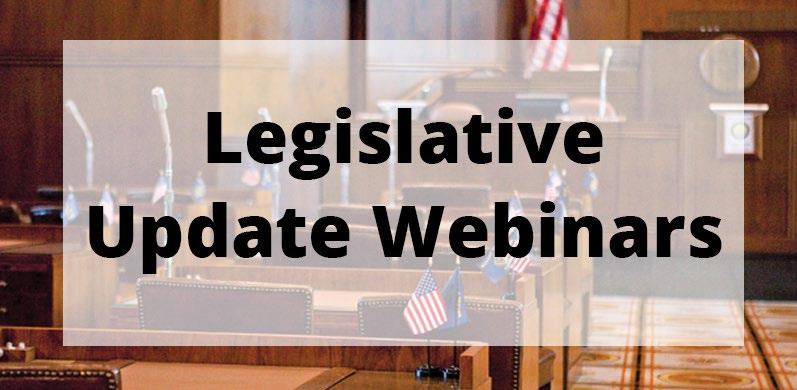
Join Us Fridays at Noon for the Latest Legislative News
LOC Executive Director Patty Mulvihill, Legislative Director Jim McCauley and the Intergovernmental Relations team provide the latest information from the Capitol as the 2024 legislative session continues.
When: Fridays at 12 p.m. through March 8
Learn how to participate via Zoom on the LOC's website: www.orcities.org.
New Resource: Lobbying 101 Toolkit
The LOC is excited to introduce a new Lobbying 101 Toolkit to help city officials in Oregon effectively communicate with their state and federal elected leaders. Within the Lobbying 101 Toolkit, city officials will learn:
• The basics of the Oregon Legislature, including how to find your legislator, track a bill, submit testimony, and read a bill, plus the official and unofficial rules of lobbying.
• How to build relationships with legislators and key staff members.
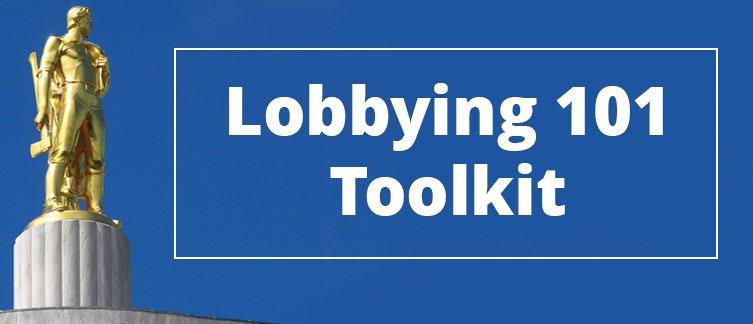
• The difference between lobbying for substantive policy reform, versus lobbying for needed supplemental revenue, and how to do both successfully.
This toolkit is comprised of short training videos, frequently asked questions, helpful links, sample documents, and other tools that will help city officials build confidence in representing their community, and more effectively engage with their lawmakers for the betterment of their local communities.
More resources will be added to the toolkit in the coming weeks. If you have questions about the Lobbying 101 Toolkit or how to work with lawmakers or their staff, please reach out to the LOC lobbying team.
19 www.orcities.org First Quarter 2024 | LOCAL FOCUS
expand detoxification services and increase resources for treatment services. Oregon has historically not made the appropriate investments in these services, and the bill for that neglect has come due.
Housing and Homelessness
Governor’s Housing Package
Governor Kotek’s housing package dominated housing policy discussions leading into the 2024 session. Her package includes an updated version of HB 3414B, the bill that fell one vote short of passage in 2023. The updated bill for the 2024 session includes the following components:
• A mandatory adjustment requires cities to grant up to 10 administrative adjustments to local siting and design standards if requested by a housing developer. The LOC was strongly opposed to this concept in the 2023 session but eventually reached a neutral position after gaining significant structural improvements to the language. As a result, the LOC enters the 2024 session in that same neutral position, while still strongly advocating for improvements.
• Creation of a new Housing Accountability and Production Office (HAPO), a coordinated effort between the Oregon Department of Land Conservation and Development (DLCD) and the Oregon Building Codes Division (BCD). The HAPO would accept and investigate credible complaints alleging violations of state housing law and work with cities to identify needed improvements, clarifications, or updates to local
housing development code and provide technical assistance either in-house or through consultants. Cities would also have the option to proactively request technical assistance support from the HAPO for any needed local updates or implementation of new state housing laws. The LOC has provided extensive feedback on this section and continues to advocate for improvements to reduce the administrative burden on cities and ensure the HAPO will meaningfully support cities and advance our shared housing production goals.
• A third component of the bill would provide an expedited pathway for a city to expand or adjust its urban growth boundary (UGB) if necessary to develop needed housing.
• The governor’s 2024 package includes some new concepts, most notably a $500 investment across a variety of infrastructure and land acquisition programs to support housing development. The LOC supports these investments and is working to ensure they are accessible to cities of all sizes across the state.
Additional Housing Production Concepts
In addition to the governor’s housing package, the LOC is responding to a variety of other housing production proposals, including a moderate-income housing revolving loan fund, an optional system development charge (SDC) deferral tool that would give a city the option to defer SDC collection and have the state take on the risk and collections obligations if the SDC is not paid. The LOC is also supporting several technical fix concepts to

2024 LEGISLATIVE SESSION 20 | First Quarter 2024 www.orcities.org
clarify the Oregon Housing Needs Analysis (HB 2001) that passed in 2023 and begins rulemaking and implementation this year.
Shelter Funding
While the 2023 Legislature made record investments to expand emergency shelter and fund the governor’s emergency shelter declaration and executive orders, an estimated 86 shelters with 3,669 shelter beds are at risk of closing before the end of the 2021-23 biennium. This estimate includes shelters supported by local ARPA funds. The LOC will join a coalition of stakeholders to support the governor’s request for $65 million this session to keep these shelters open and ensure that Oregon does not lose ground.
Regionally Significant Industrial Site (RSIS) Program Reauthorization
The LOC is advocating for reauthorizing the 10-year RSIS program, which expired in 2023, and creating a $40 million Industrial Land Loan Fund. The RSIS program allows local governments to recuperate some of the cost of industrial site readiness activities, funded by state income taxes from jobs created on the site.
Recreational Immunity
After an adverse and perplexing appellate court decision calling into question the tort immunity enjoyed by public and private landowners when they allow access to their land free of charge for recreation (see article on page 22), public agencies and recreational user groups approached the Legislature for a fix to ensure continued public enjoyment. The issue in the case was whether or not a person hiking on a trail while walking their dog and socializing with a friend was recreating on the trail, or whether it was used for transit to and from a recreational area.
Despite strong public support for a fix and multiple new articles indicating a problem, as of mid-February it appears as if the Legislature will take the opportunity to clarify whether the use of trails is recreational or expose landowners to unnecessary liability and litigation costs. After previous efforts in court rulings on recreational immunity, the Legislature strongly supported protecting access to recreation.
The team of legislative advocates representing the LOC and its members during the 2024 session includes:
Contact the LOC Advocacy Team
Patty Mulvihill, Executive Director (971) 428-7271 | pmulvihill@orcities.org
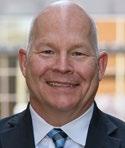






Jim McCauley, Legislative Director Transportation, wildfire policy (971) 428-7274 | jmccauley@orcities.org
Scott Winkels, Lobbyist
PERS, ethics, HR, collective bargaining, public safety, public contracting, mental health & general government (971) 428-7275 | swinkels@orcities.org
Ariel Nelson, Lobbyist
Land use, housing & building codes (541) 646-4180 | anelson@orcities.org
Michael Martin, Lobbyist
Water, wastewater, environment, natural resources, solid waste (971) 382-2069 | mmartin@orcities.org
Nolan Pleše, Lobbyist
Telecommunications, broadband, cybersecurity, artificial intelligence, energy & environment (971) 428-7278 | nplese@orcities.org
Lindsay Tenes, Lobbyist
Tax, finance & economic development (971) 416-6818 | ltenes@orcities.org
Meghyn Fahndrich, Legal Assistant Administrative Support (971) 428-7985 | mfahndrich@orcities.org
LEAGUE OF OREGON CITIES 1201 Court St. NE #200, Salem, OR 97301

www.valley-creditservice.com | 503-585-8888 Since 1936 Serving the State of Oregon for over 85 years 21 www.orcities.org First Quarter 2024 | LOCAL FOCUS


Oregon’s Higher Courts End Recreational Immunity for Improved Trails
By Kirk Mylander, CIS General Counsel
Last summer, the Oregon Court of Appeals issued an opinion effectively ending recreational immunity for improved trails. Public and private landowners of improved trails are no longer protected from lawsuits. (Fields v. City of Newport).
Nicole Fields Falls While Walking With a Friend and their Dogs
In Fields v. Newport a woman was walking with her friend and their dogs on the beach. She walked away from the beach on an improved trail which was owned and maintained by the city of Newport. The woman came to a wooden footbridge that was wet. She slipped and fell, then filed a lawsuit against the city.
Ms. Fields’ suit alleged the city was negligent in maintaining the bridge and not putting up warning signs. Newport responded that it was immune from suit because Fields was using the Ocean to Bay Trail for a recreational purpose, walking with a friend and their dogs while they talked and socialized.
Oregon’s recreational immunity provided liability protection to landowners who open their property for recreational activities, shielding them from certain lawsuits and claims related to injuries or accidents that occur on their land.
The Trial Court Applied Recreational Immunity, Protecting Newport
The trial court agreed with the city, ruling that recreational immunity protects landowners from a lawsuit when they open their property to the public for recreational purposes without a fee. Because of recreational immunity the trial court granted
summary judgment, which ended the case early in favor of Newport.
The trial court determined “there are no genuine issues of material fact in dispute” and that under state law, the plaintiff was “using the trail for recreational purposes” by “walking her dog on a trail to the beach with a friend,” and thus the city was entitled to recreational immunity from any liability.
Fields appealed the trial court’s ruling, arguing that the trial court could not conclude that her “principal purpose” (as required under state law) in walking on the trail was recreational as long as she claimed that the subjective intent in her mind was something else.
The Oregon Court of Appeals Strikes Down Recreational Immunity
The Oregon Court of Appeals decided that there is a factual dispute between Fields and the city as to whether her use of the trail was recreational, or whether her primary purpose was instead for “accessing the beach.” In other words, the Court of Appeals held that the trial court needed to hold a jury trial to determine whether the plaintiff’s principal purpose on the trail was accessing the beach, or to recreate while using the trial with a friend and their dogs while they “socialized.”
Either way, recreational immunity no longer stops a case at the beginning (an “immunity” from suit), because any plaintiff can claim their “principal purpose” was not to recreate.
22 | First Quarter 2024 www.orcities.org
Local Governments Requested that the Oregon Supreme Court Restore Recreational Immunity — But the Court Refused to Hear the Case
The city of Newport asked the Oregon Supreme Court to overrule the Court of Appeals and restore recreational immunity. Other members of the local government community in Oregon also asked the Oregon Supreme Court to review the Fields case and reverse the Court of Appeals. The city of Medford, the League of Oregon Cities, the Association of Oregon Counties, the Special Districts Association of Oregon, and the Oregon Recreation and Park Association all joined Newport in asking the Oregon Supreme Court to reverse the Court of Appeals:
“A decision from the Oregon Supreme Court is necessary here. The Court of Appeals created an exception that swallows the rule by finding a question of fact exists on whether socializing with a friend, walking dogs, and enjoying a scenic trail to access the beach is recreational or not.”
The city asked the Supreme Court to reverse the Court of Appeals because of the damage the Court of Appeals opinion will have on the public’s access to recreational land. If the Court of Appeals opinion were to stand, the city argued, then “Landowners must decide if making their land available for recreational purposes is worth the risk of effectively losing access to the immunity by having to litigate through trial whatever subjective beliefs an injured plaintiff asserts their principal purpose was.”
Unfortunately, that is where things stand today. On Oct. 5, 2023, the Oregon Supreme Court officially declined to review the Court of Appeals’ decision in Fields. This action, called “review denied” functions as a de facto endorsement by the Oregon




Supreme Court of the Oregon Court of Appeals’ decision striking down recreational immunity.
At the heart of the dispute is whether a trial court can decide at the beginning of a case whether or not a plaintiff’s “primary purpose” when entering land was recreational or not recreational.
Subjective Intent is Too Subjective for Recreational Immunity to Function as the Legislature Intended
The Court of Appeals did not base its decision on what Fields was actually doing on the city of Newport’s trail. Instead, the Court of Appeals turned to a dictionary for assistance with the word “walking.”
The Court of Appeals found that walking with a dog could sometimes be a recreational activity, but was not necessarily always a recreational activity. The Court of Appeals said that even when walking and socializing, Fields’ “principal purpose” could have been “to go to and from the beach” which the court did not consider to be recreational.
If, the court reasoned, Fields was thinking that her “principal purpose” was to “access” the beach where she would begin to “recreate” with her dog and her friend, then recreational immunity does not protect the City (or any landowner). The key, according to the Oregon Court of Appeals, is the plaintiff’s subjective intent not her objective activities at the time.
Unless the Legislature steps in, from now on when a person using the city’s path claims that their subjective intent was not primarily to recreate, then recreational immunity does not apply at the beginning of a suit. Instead, the municipality (or private landowner) will have to defend the lawsuit all the way through a jury
(continued on page 24)

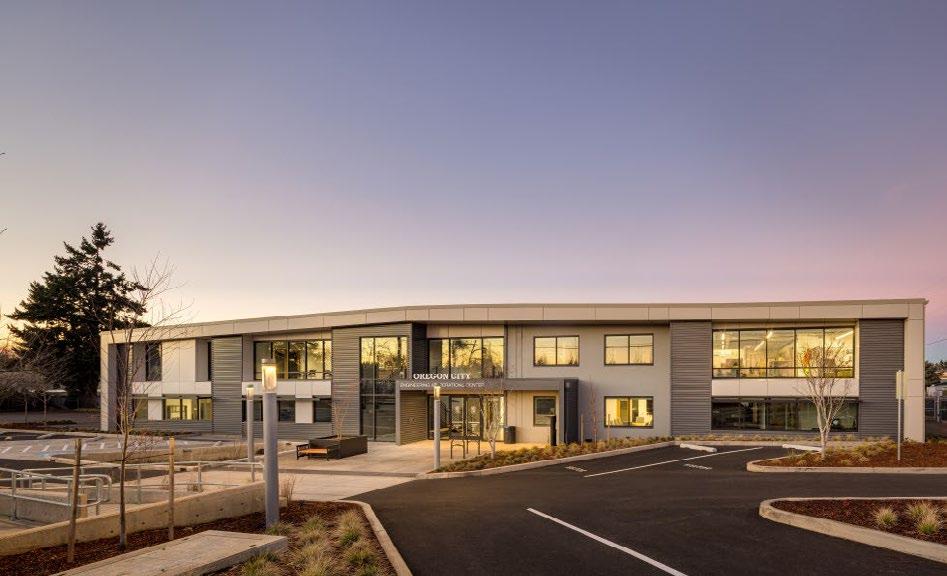



1943 SINCE CCB #10723 WA*EMERIC* 379NT CA #984265 EMERICK.COM 503.777.5531 7855 SW MOHAWK STREET TUALATIN, OREGON 97062 BUILDING THE PNW FOR 78 YEARS GIVING BACK TO THE COMMUNITIES WHERE WE live.work.play 23 www.orcities.org First Quarter 2024 | LOCAL FOCUS
trial, so the jury can decide what the plaintiff was thinking about their “primary intent.”
Legally, this transforms recreational “immunity” from a legal rule that stops a lawsuit at the outset, and turns it into a defense that a city, county, school district, or private landowner can only try to use at trial. Recreational immunity is no longer a true immunity.
Is Anything Left of Recreational Immunity?
The protection from lawsuits that landowners relied on in deciding to open their land to the public is now likely gone for all trails. It may be gone for any property that someone can claim they “were just passing through.”
The Oregon Court of Appeals and Oregon Supreme Court have repeatedly issued rulings that have the effect of striking down some, or all, of the Legislature’s recreational immunity statute. The good news, though, is that the Oregon Legislature has repeatedly stood behind Oregon’s policy of encouraging private and public landowners to open their property to the public for recreational activities like hiking, mountain biking, kayaking, hunting, fishing, rock climbing, and accessing the beautiful coastline.
Once again, the League of Oregon Cities and the Association of Oregon Counties are ready to bring a bill to the Legislature in 2024 to restore recreational immunity. But the support of individuals and local governments is needed. The people of Oregon who enjoy recreational access to a wide range of properties, especially including trails to access climbing areas, the coast, rivers, streams and lakes, need to contact their local legislator and their local city or county officials to express their desire to restore recreational immunity.
Your CIS risk management consultant is available to assist you as you plan, evaluate, and mitigate the heightened risk as a result of the Fields v. City of Newport ruling.
For more information, visit CIS’ Recreational Immunity FAQ at cisoregon. org/RecImmunity
Recommendatons for Cities and Counties
1. Improved trails that are used to access a recreational area should be closed. This especially includes trails, walkways and stairs used to access bodies of water, such as the ocean, lakes, rivers, streams and reservoirs.
2. Consider closing unimproved trails, because the subjective intent of the user can now nullify recreational immunity, which means if someone is injured on an unimproved trail, the city or county may find itself facing a costly jury trial to determine the injured person’s intent in using the trail.
3. Speak with your city attorney about how Fields v. Newport could negatively affect your other recreational offerings to the public. For instance, someone who trips in a park can now say their primary purpose in using the park was not recreation, but rather they were simply passing through the park to access some other area in your jurisdiction.
4. Download and utilize this audit for property you decide to leave open because it is not conducive to a claim from someone “just passing through”, to ensure your facility is protected as much as possible from liability claims.
a. Consider requiring people to sign a form affirming they are using the property only for recreational purposes if your organization can afford to post someone at that location (at a skate park, for example).
5. Contact your legislator and any of the following organizations you are affiliated with: the League of Oregon Cities, the Association of Oregon Counties, the Special Districts Association of Oregon, or the Oregon Recreation and Park Association; express your desire to keep property free and open to everyone in Oregon for recreational activities.

CIS – RECREATIONAL IMMUNITY 24 | First Quarter 2024 www.orcities.org
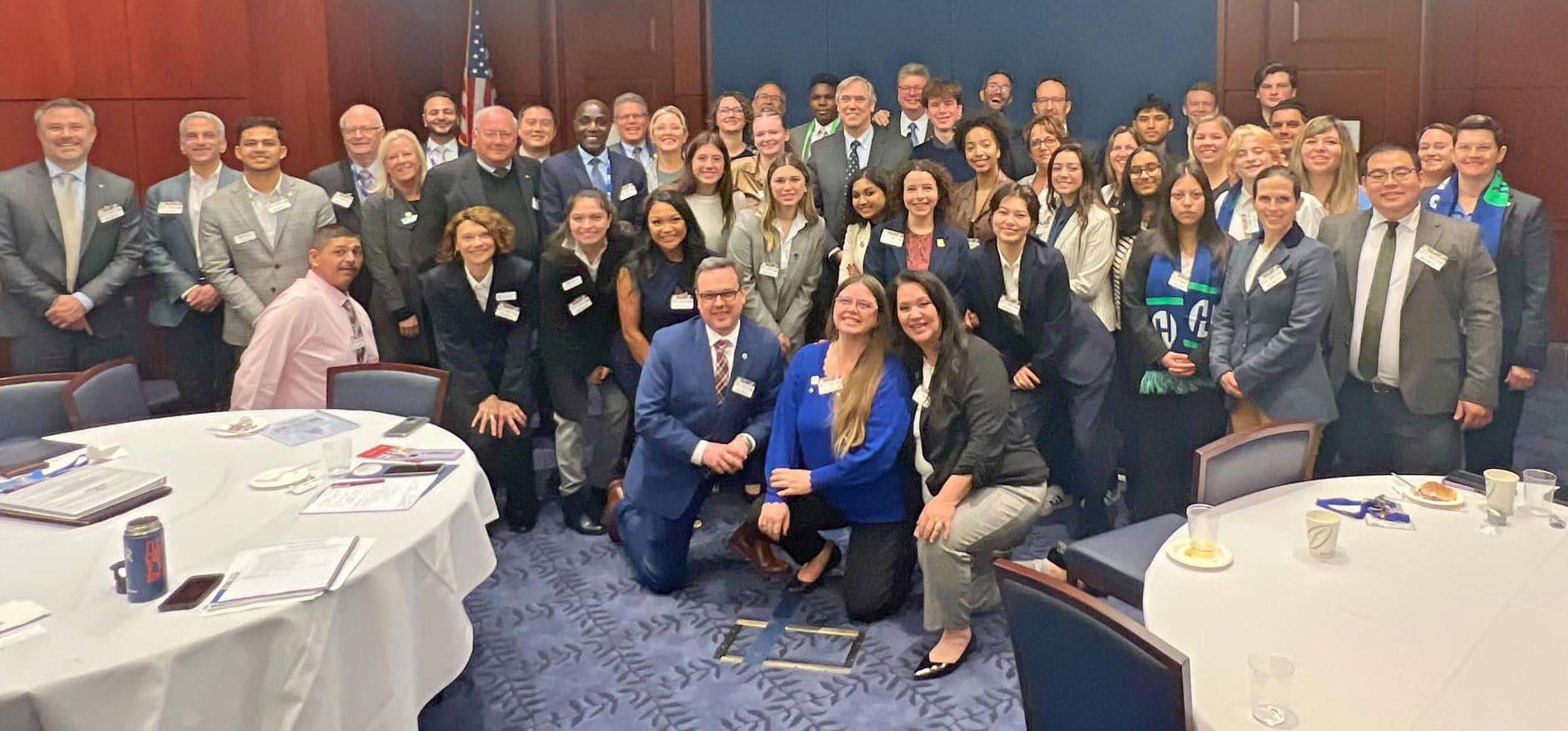
National League of Cities’ Conference Offers Opportunities for Learning, Sharing Lessons
From the inspiring, historical atmosphere in Washington, D.C., to in-person meetings with Oregon’s congressional leaders, the National League of Cities’ Congressional City Conference promises to offer myriad opportunities when the annual event takes place March 11-13.
Fossil City Councilor Carol MacInnes attended last year’s national conference and said that while the issues her small, frontier city faces differ from those in larger, metro areas, there is a commonality in the conference experience for attendees across the country.
“They have great sessions,” she said. “There are a lot of sessions on homelessness, and I like just listening to stories about the magnitude of people that cities are trying to help. I find it all fascinating and a lot of that does not impact us yet, but I learn from hearing about other communities’ struggles. It’s interesting to hear stories about what they’ve done.”
MacInnes said her favorite part of the conference is meeting with Oregon’s congressional delegation, and she is looking forward to doing that again next month. It’s an opportunity she doesn’t take for granted.
“I love that the League of Oregon Cities offers scholarships and you can apply for a scholarship to attend these,” she said. “We certainly don’t have the money in our budget to send anybody to D.C., so those scholarships make that possible.”
Independence City Manager Kenna West said it’s easy for city leaders to feel like they work in silos, and the national conference fosters a sense of camaraderie and cross-pollination of ideas. “Everybody throughout the United States has an issue similar to yours,” she said. “It’s really nice to talk with other city managers and elected officials about how their governmental process works. As a city manager, it is really helpful to know I’m on the right path.” she said.
As an example, she recalled a conversation with attendees from Texas who said their city council wasn’t getting along very well. “They were experiencing a little bit of a divide, and I was able to share how we were able to heal a little bit of a divide here to help our council,” West said.
The conference also provides a chance for her to spend time with her peers from Oregon, learn from them and strengthen relationships so they can better support each other at home. West described herself as fortunate to have met in person with the state’s congressional delegation several times and said it is always a welcome conversation.
“Infrastructure is a huge deal here, so to be able to talk with them about infrastructure, planning and financing is an incredible opportunity,” she said.
Detroit Mayor Jim Trett said his participation in last year’s national conference allowed him to meet with representatives
(continued on page 26)
Oregon city officials and youth delegates pose for a group photo with Senator Jeff Merkley during the 2023 Congressional Cities Conference.
25 www.orcities.org First Quarter 2024 | LOCAL FOCUS
from the Federal Emergency Management Agency (FEMA), which he has been working closely with since the 2020 wildfires devastated his community. Trett said he shared his experience of what went well in working with FEMA and some areas that need improvement.
“Meeting with our congressional delegates was a fantastic opportunity to learn what’s going on with them. They do a pretty good job of coming to Oregon, but to go back there was something special for me,” he said, adding that meeting with mayors from other regions gave him new perspectives. “I’ve been doing the mayor thing for a while but I’m still learning a lot.”
Noting his appreciation to the LOC for funding his trip to the national conference, Trett said it was his first time to visit Washington, D.C., and he took time to go sightseeing with MacInnes and North Plains Mayor Teri Lenahan.
“We all had the same bucket-list things we wanted to see and to get to see them with friends was really meaningful for me,” he said. “Anybody who has the chance to go should jump at it, and it was really eye-opening for me.”
Dayton City Manager Rochelle Roaden said last year’s national conference was also her first time to visit the city. “The history all around you is just incredible as well as the history displayed at the U.S. Capital,” she said.
“The biggest impact for me was learning about other states, their unique situations as well as unique programs and solutions to problems that all municipal governments are dealing with,”
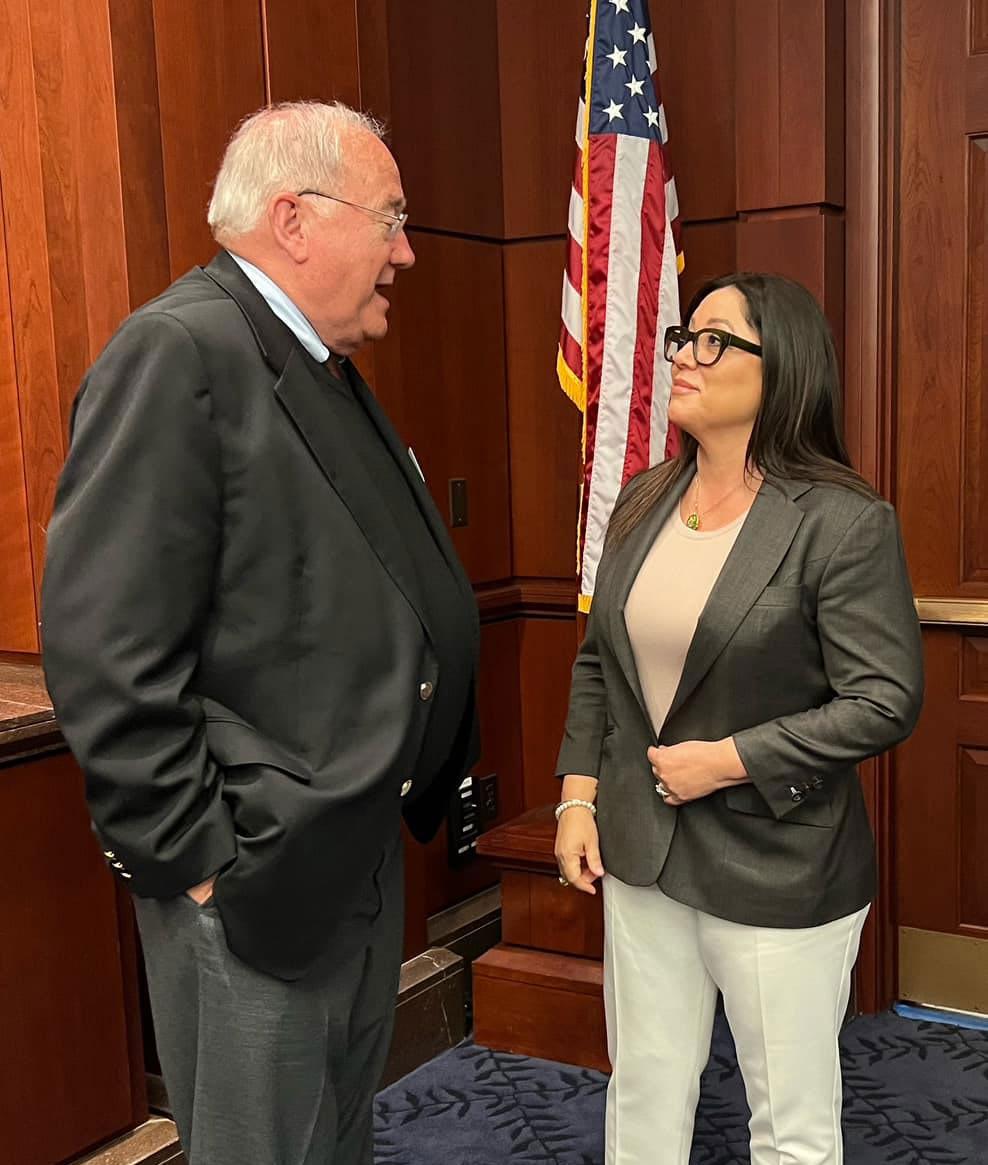
Roaden added. “While you find that there are differences, you also see that we have a lot in common across this country.”

NLC CONGRESSIONAL CITIES CONFERENCE LEARN MORE: 727.474.3845 | sportsfacilities.com
you
sports,
Sports Facilities Companies. From developing new facilities to optimizing recreation programming, we can help you maximize the impact of sports in your community. 26 | First Quarter 2024 www.orcities.org
Detroit Mayor Jim Trett discusses issues with U.S. Representative Lori Chavez-DeRemer.
When
think
think
Seaside City Councilor Tita Montero attended the NLC’s City Summit in Atlanta last November and is looking forward to the Congressional City Conference next month. One of her priorities will be to discuss her city’s burgeoning plan to build a parking structure near Seaside’s convention center that would also serve as a vertical evacuation center in the event of a tsunami.
“That’s going to be a message that I take and I’m looking forward to getting talking points from our legislative people and the LOC,” she said. “There are different ways to express your needs and wants to your congressional delegation. The most important way and the way they hear you the best is in person.”
Pendleton City Councilor McKennon McDonald also attended the conference last November and will travel with Oregon’s delegation to Washington, D.C., in March. She said the City Summit in Atlanta was “the first event like that that I’d ever been to and being able to represent my city, the League of Oregon Cities and Oregon at that scale was a very humbling experience.”
McDonald served as an intern for a U.S. senator during college and learned about the state level of the governmental process. She is looking forward to experiencing how to navigate federallevel politics.
“We have a contract with a lobbying firm in D.C. so we do have connectivity points with our representatives, but being in the same room and hearing what they have to say and sharing information with them will be a really great learning experience,” she said. “I’m excited for the opportunity, and I hope to learn a lot and bring that back to my community from my travels in March.”
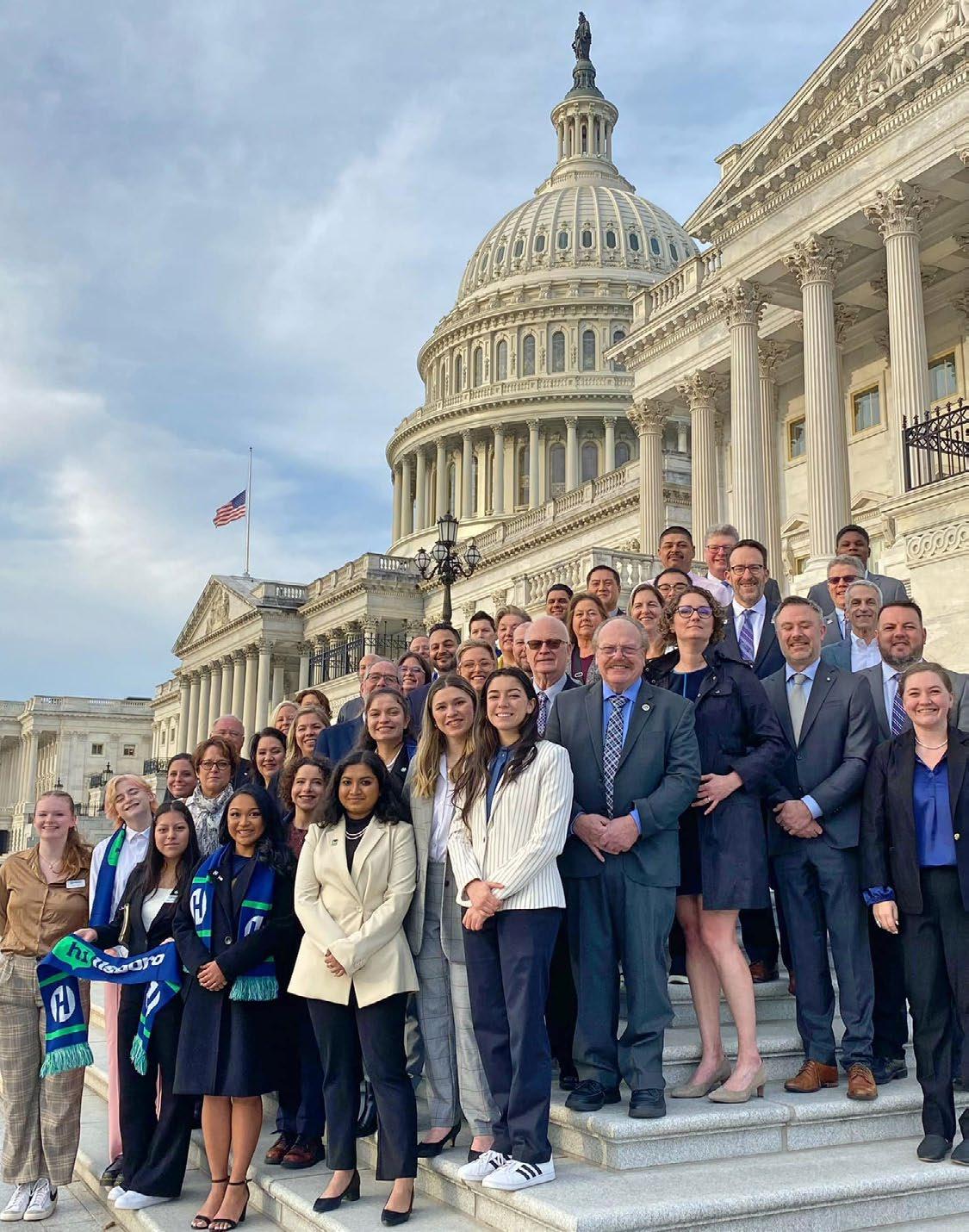
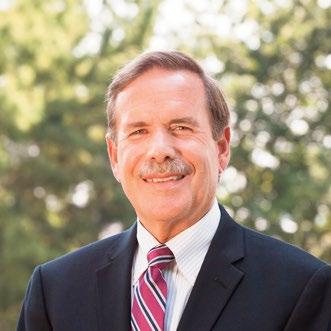
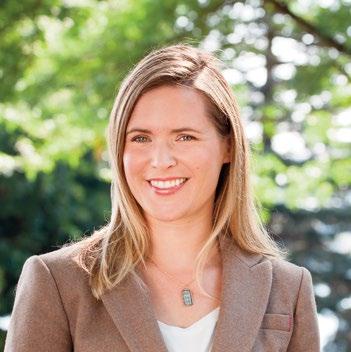
�J�a�m�e�s� �S�h�a�n�n�o�n Courtney Dausz �L�e�g�a�l� �a�n�d� �B�o�n�d� �C�o�u�n�s�e�l� �S�e�r�v�i�c�e�s P.O. Box 96056 Portland, OR 97201 503.226.6400 mershanlaw.com 27 www.orcities.org First Quarter 2024 | LOCAL FOCUS
Oregon delegates gather on the steps of the U.S. Capitol.
Policy Committees to Begin Meeting in March After ‘Significant Shift’ in Process
The LOC’s seven policy committees will soon begin meeting to help define the organization’s next set of legislative priorities, and Legislative Director Jim McCauley says the League has made a “significant shift” in how it develops the committees to ensure they accurately reflect communities across the state.
“The whole point was to make sure that the voices we have around the table are balanced geographically, by size of communities and so that we have a spectrum of perspectives because their work really defines what our policies look like and is integral to the legislative work we do,” McCauley said.
During the fall of every odd-numbered calendar year, the LOC forms a new set of policy committees to help prepare legislative priorities for the next two years. Each of the seven policy committees meet during the spring of the even-numbered year and then offer three to five priorities to advance for the full LOC membership to rank during the summer. The LOC Board of Directors then reviews and adopts the final set of priorities for the next full session.
The LOC committees are the Broadband, Cybersecurity & Technology Policy Committee; Community & Economic Development Policy Committee; Energy & Environment Policy Committee; Finance & Taxation Policy Committee; General Government Policy Committee; Transportation Policy Committee; and Water/Wastewater Policy Committee. Each committee is intended to be comprised of a mix of individuals, including technical experts, elected leaders, municipal officials, full-time city staff, and municipal specialists who are under contract with a city, such as finance specialists and lawyers. The committees are designed to represent a balance between rural, suburban and urban cities while also reflecting all regions around the state.
The LOC has worked to streamline and improve upon its policy committee development. LOC lobbyists staff each policy committee and help provide guidance on what work has been done in the past on specific issues. Members of the committees then engage in visioning to determine pressing issues, and develop the three to five priorities for each committee.

28 | First Quarter 2024 www.orcities.org
The policy committees will meet March through June. This summer, LOC cities will receive a ballot comprised of the priorities developed by the policy committees and they will be asked to identify their city’s top priorities. The results of the surveys are shared with the LOC Board of Directors, who, during a meeting in late summer or early fall, adopt legislative priorities for the organization.
McCauley said that in 2022, the last cycle of this process, 28 different issues were presented for cities to vote on. For the 2023 and 2024 legislative sessions, the top eight legislative priorities were: infrastructure finance and resilience, and funding for critical infrastructure for needed housing; local funding to address homelessness; addressing Measure 110 shortcomings; economic development incentives; community resiliency and wildfire planning; transportation safety enhancement; full funding and alignment for state land use initiatives; and lodging tax flexibility.
“What’s interesting about the priority setting is that there is usually quite a bit of consensus on what the top three priorities are,” McCauley said. “This shows that whether you’re in Bend, Burns, Fossil or Cottage Grove, there are some shared priorities that every community believes is important.”
Traditionally, anywhere from six to 10 priorities emerge from the voting process and, after the top three, there are some differences depending on cities’ size, geographic location and other
factors. In some cities, mayors and city managers initiate community conversations about priorities while elsewhere that input is gathered in other ways.
“Everybody does it a little bit differently, but it always captures what is most important to the local community,” McCauley said. He noted that even if an issue is not included in the top 10, the LOC continues to advocate for those lower on the list. “Every priority identified by policy committees remains important, even if the priority did not receive enough votes for the top 10. We don’t walk away from the issues our members identified as important,” he said.
In addition to ensuring the committees are wholly representative of the entire state, LOC staff worked to create a framework and process that provides members with a clearer understanding that the policy committees are intended to be comprised of both technical experts and those who generally have an interest in the subject matter.
The framework also allows for collaboration between policy committees when their issue areas overlap, identifies the full expectations of committee members, and provides those applying for the committees and LOC lobbyists with more objectively defined roles. Learn more about each policy committee on the LOC website
Mobilizing your community
© 2017 AT&T Intellectual Property. All rights reserved. Connected communities are strong communities. By advancing our technologies and services, we’re helping to create the opportunities that make Oregon a better place to live and work. When everything works together, your community moves forward.
29 www.orcities.org First Quarter 2024 | LOCAL FOCUS
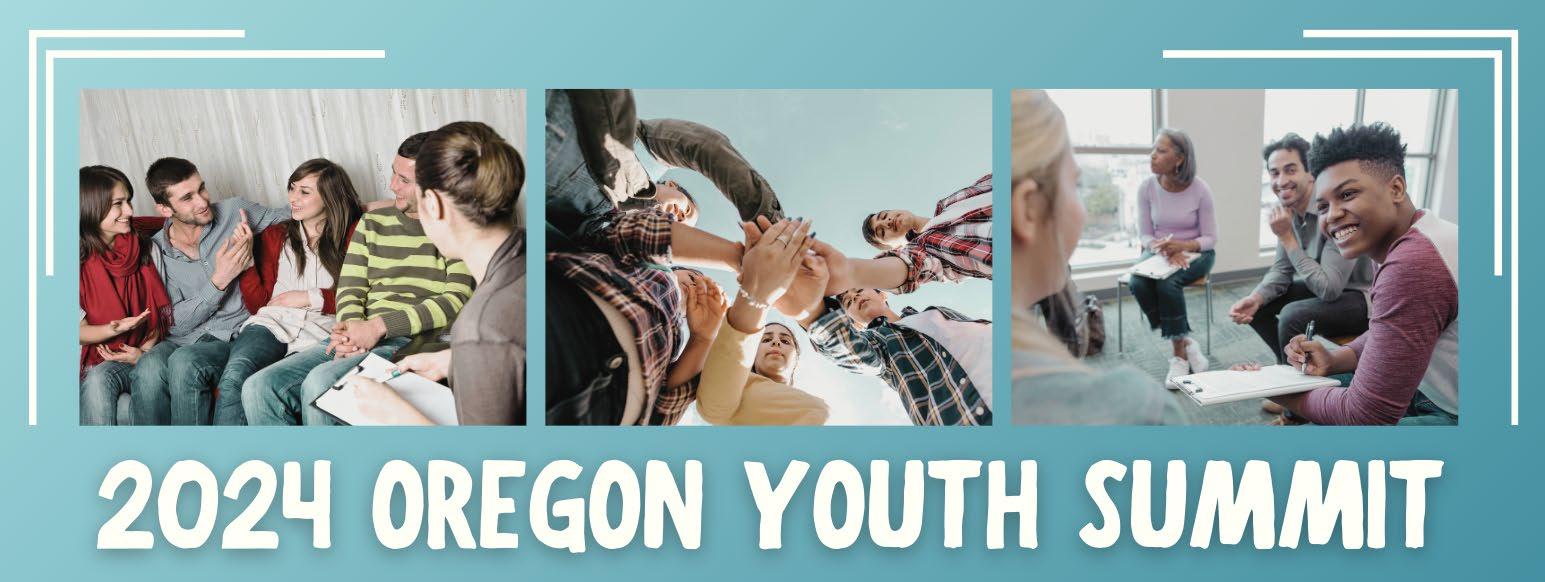
Oregon Youth Summit Provides Forum for Teens to Discuss Pressing Issues, Solutions
Dozens of high-school students recently addressed some of the state’s most pressing issues and offered solutions for municipal leaders to consider during the 2024 Oregon Youth Summit, held February 2 at Willamette University in Salem.
Kid Governor Zoya Shah opened the event with remarks about the importance of increasing mental health awareness by normalizing talking about these issues, removing stigma, identifying triggers that cause anxiety and depression, and providing tools and supports to help solve the issue.
Lake Oswego Mayor Joe Buck expressed his gratitude to students for giving their time to help support their peers and their communities. “We make no mistake that the input these students are providing is making a real difference,” he said.
Buck attended the summit with the Lake Oswego Youth Leadership Council, which he helped establish in 2015. He described how the group has evolved over the years and expressed gratitude for the Happy Valley Youth Council, which was the first of its kind in the state and a model for Lake Oswego’s program.
“Our council has transformed into a real civic leadership forum where students learn about all aspects of public service,” Buck said, adding students also learn about career opportunities in public service and the important role they play as members of their communities.
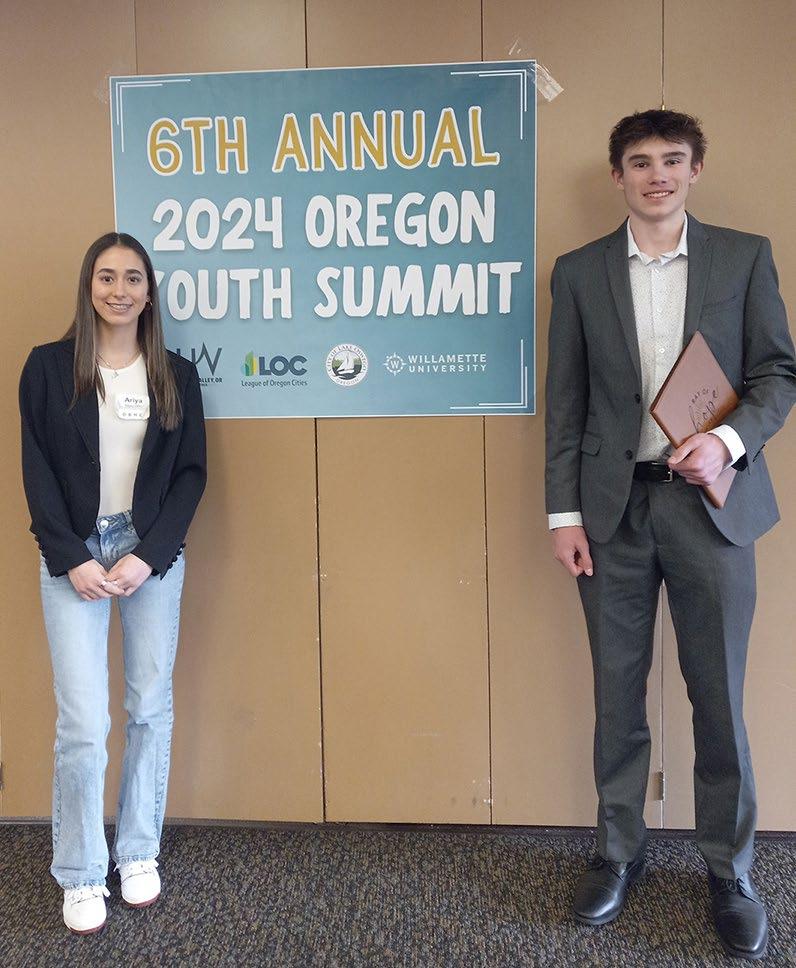
30 | First Quarter 2024 www.orcities.org
Ariya Andrews and Will Sussman, both members of the Happy Valley Youth Council, participated in the Oregon Youth Summit and said they appreciated the opportunity to talk about important issues with high-school students from other communities and carry the summit’s tradition forward.
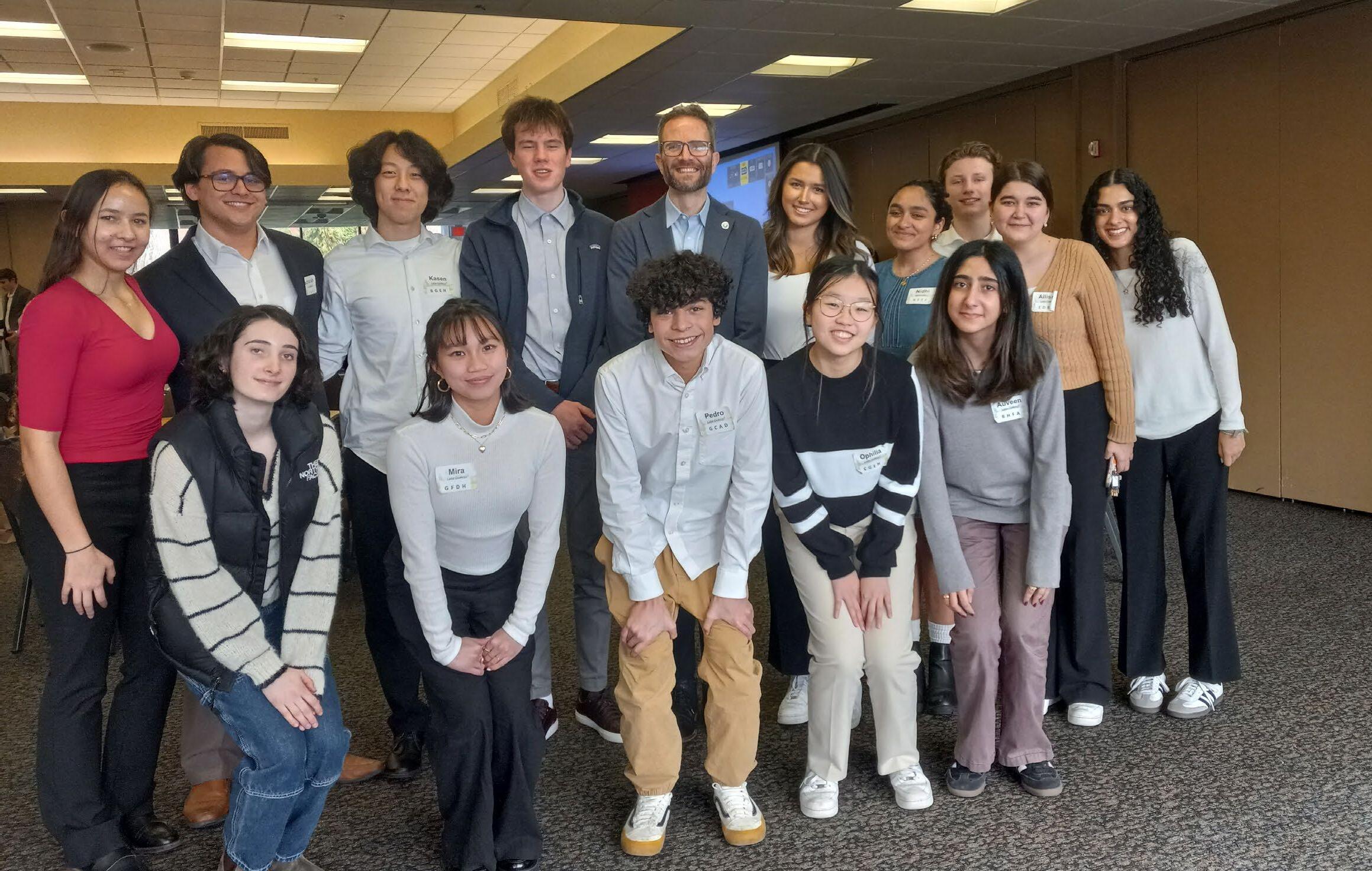
The two cities collaborated to organize this year’s summit, bringing together their members to shape the structure, identify key issues affecting youth wellbeing and guide participants through the event. While this was the first year Lake Oswego co-hosted, Happy Valley founded the event six years ago with the intent of creating a regional coalition of city-sponsored youth programs.
Naomi Robinson, a 10th grader at Lake Oswego High School, and Nidhi Nair, a senior there, were both involved in the summit’s planning and said they were proud of how the event turned out.
“In this summit we have the opportunity to share our experiences and talk with each other about how we can help other youth,” Robinson said. “It’s such a more open environment and being able to talk in small groups has been really good.”
Nair said it was interesting to watch the day unfold after being so involved in the planning process. “It’s definitely more personal and that was one of the main things we considered while planning,” she said.
Each of the small group discussions, or Youth Wellness Sessions, was organized by a different topic and guided by an adult professional in that area of expertise. Students chose four topics of interest and participated in discussions that lasted about 20 minutes per table.
Michelle Kutnyak of Northwest Family Services led the Substance Use session; Robin Bergeron of Collective Roots led the Therapy Awareness session; Gary Marschke of the National Alliance on Mental Illness (NAMI) Clackamas chapter led the Depression
(continued on page 32)

So you have the power to we’ll continue to


You count on all of us at Pacific Power to deliver the most reliable and sustainable power possible. That’s why we’ve upgraded our fleet of 695 wind turbines with new technology to power 74,000 more homes annually. See how you inspire us to go even further at PoweringGreatness.com

innovate grow
©2021 Pacific Power
31 www.orcities.org First Quarter 2024 | LOCAL FOCUS
Lake Oswego Mayor Joe Buck, center, attended the Oregon Youth Summit with the Lake Oswego Youth Leadership Council, which he he lped establish in 2015. The group served as a model for other cities as they established their own youth councils.
“It’s such a more open environment and being able to talk in small groups has been really good.”
– Naomi Robinson, 10th grader
& Anxiety session; and Jamie Dunphy of the American Cancer Society led the Advocacy/Election Process session.
Sean Suib of New Avenues led the Teen Houselessness session; Ali Tucker of Pediatric Associates of the NW led the Parental/ Academic Pressure session; Daisy Quinonez, who specializes in equitable housing initiatives, led the Discrimination/Racism session; and psychologist Dr. Doreen Dodgen-Magee led the Media Consumption session.
After a lunch break, student representatives from each table group presented key takeaways from the discussions. Among those messages, students want elected officials to place restrictions on advertisements for vaping products and how their marketing targets youth.
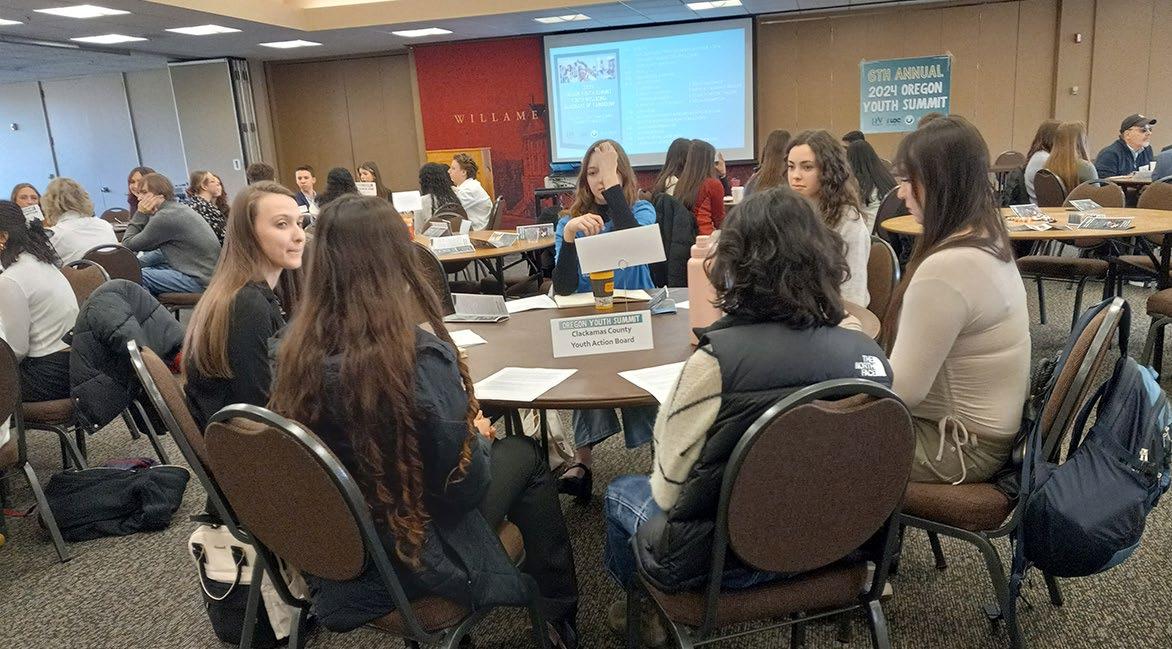
They recommended that schools not only work to increase awareness about therapy options but also make more resources available. Students also suggested that their peers work to establish NAMI clubs on their campuses, which can be done by applying online.
Advocacy and empowerment were a key theme of the discussions and involved how to pivot around roadblocks to meet goals. The need to listen to other young people about their experiences and perspectives, ranging from racism and discrimination to academic pressure, was another key theme.
The Parental/Academic Pressure session led to a discussion of options such as community colleges and trade schools as alternatives to four-year universities. In addition, students said they want mandatory school counselors or, at least, a mandatory ratio of students to counselors.
The need to remove stigma was a large part of the conversation around teen houselessness as well. Summit participants suggested that children should learn about it during early education and education about it should be more inclusive. They encouraged houseless students to share their experiences on social media to increase awareness and make known what they need so others who are able to can provide food, shelter, clothing,

knowledge
Our deep client relationships are built on trust and insider’s knowledge of the LOCAL GOVERNMENT INDUSTRY. Understanding how the law and practical aspects of the industry intersect, we empower clients to make smart business decisions. jordanramis.com OREGON YOUTH SUMMIT
INSIDER’S
32 | First Quarter 2024 www.orcities.org
Dozens of high school students gathered during the Oregon Youth Summit to discuss issues such as substance use, mental health, teen houselessness, discrimination and racism, media consumption, academic pressure and advocacy.
shower facilities and other resources. Summit participants also pointed to the need to educate young voters about the issue.
In discussing media consumption, students noted the “predatorial nature” of social media and apps that encourage addiction to screen time, which they learned can impact one’s attention span and jeopardize the ability to think critically. They also talked about how social media impacts young people’s ability to interact with each other, both online and in person, as well as self-esteem amid the pressure to achieve and be highly visible. The table discussion led to strategies to reduce time on social media and apps.
“It was really cool to come together and share ideas about a variety of issues from different communities and talk about such important topics,” said Ariya Andrews, a 10th grader at Adrienne C. Nelson High School and a member of the Happy Valley Youth Council.
Will Sussman, a senior participating in online learning and a member of the Happy Valley Youth Council, said he was proud to carry on the Oregon Youth Summit’s tradition during its sixth gathering and help carry it forward into the future. “I think it’s really cool to see so many people from youth councils across the state. The more people you have, the better it’s going to be.” Following the summit, the students walked to the state capitol for a group photo, a tour and the chance to talk with representatives.
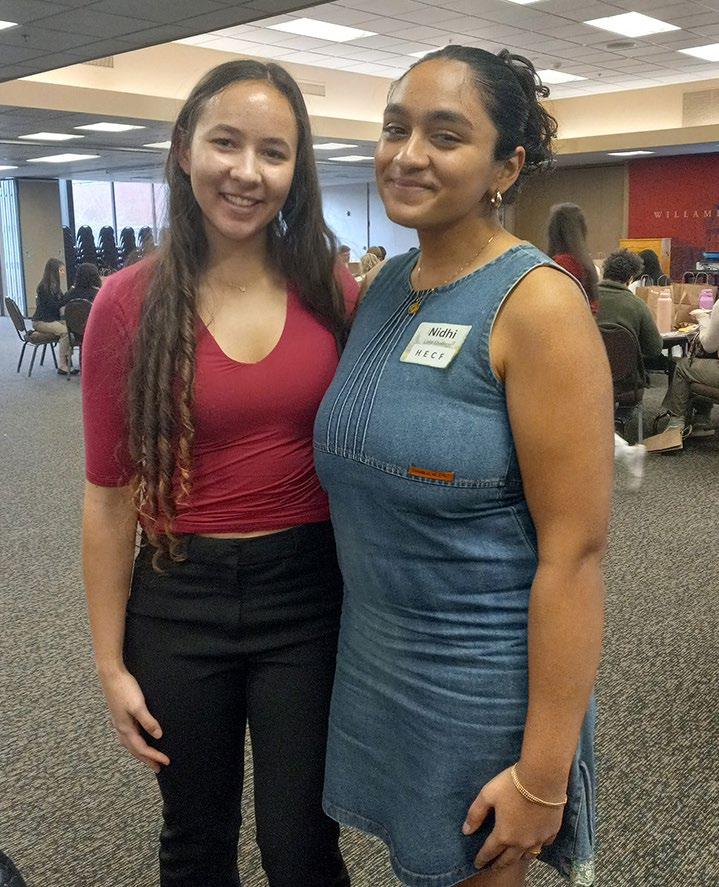


As a leader in the energy services industry, we have built long-term relationships with several Oregon cities – such as Bend, Redmond, and Medford – to save energy dollars, generate clean energy, and achieve carbon reduction goals. Call Ameresco today to learn about resilient & renewable solutions for your community. Today’s Savings Fund a Brighter Tomorrow ©2022 Ameresco, Inc. Ameresco and the Ameresco logo, the orb symbol and the tagline “Green. Clean. Sustainable.” are registered in the U.S. Patent and Trademark Office. All rights reserved. 503-290-1293 ameresco.com
33 www.orcities.org First Quarter 2024 | LOCAL FOCUS
Naomi Robinson, left, and Nidhi Nair, students at Lake Oswego High School, were both involved in planning the Oregon Youth Summit, which centered around small group discussions and open conversations led by adult facilitators.
State 2024 of the Cities Report
Every two years, the League of Oregon Cities (LOC) conducts a survey to gauge the general fiscal condition of the cities in Oregon. Sixty-eight percent of cities have seen an increase in service demand, compared to 56% in 2021. Additionally, the financial outlook is significantly more distressing. In the past, 90% of cities were better able or able to meet their financial needs compared to the previous year. This year’s survey shows only 70% respond in the same way. Overall, this year’s survey indicated a considerable lack of certainty for cities across the state.
For most cities, the primary sources of revenue are property taxes and utility franchise fees. Studies by the LOC since 2016 reveal franchise fee revenues often do not keep pace with inflation. Additionally, the property tax constraints from Measures 5 and 50 have created a system that limits the amount of taxable revenue available to local governments. This means that traditional revenue sources for cities are steadily shrinking, forcing local governments to either rely on alternative revenues, cut spending, or eliminate services.
While most cities reported financial conditions as stable or improving over the last year, a marked decline in optimism for future fiscal health is evident. Cities have reacted by adjusting their financial practices; the majority increased fees, charges, and licenses, while maintaining or slightly increasing service levels and city employee numbers. There is a clear trend of operating cost hikes, likely due to inflation, with some cities also reporting staff and service cuts in departments such as city hall, libraries, and social services. These adjustments have not been uniformly sufficient.
This survey collected data between November 6, 2023, and December 1, 2023, with 73 cities responding. The respondents represent only 972,806 city residents, or 32% of the city residents in Oregon. In addition, survey respondents were overrepresented by cities in the 4th and 5th Quintiles1 and cities in South Willamette Valley, and Central Oregon regions.
RESULTS
Nineteen percent of responding cities reported they were better able to meet financial needs, as opposed to 39% in 2021. This shows a significant change as the responses to this
“ ”
KEY FINDINGS
• The “2024 State of the Cities” survey indicates that 68% of Oregon cities have seen an increase in service demand, up from 56% in 2021, with a concerning decrease in the number of cities reporting improved financial capability compared to previous years.
• Traditional revenue sources for cities, like property taxes and utility franchise fees, are not keeping pace with inflation, compelling cities to either cut spending, eliminate services, or rely on alternative revenues.
• A significant number of cities have raised fees, charges, and licenses to cope with fiscal pressures, while maintaining or increasing service levels and city employee numbers, amidst a trend of rising operating costs.
• Survey responses were skewed towards cities with larger populations and those in certain regions, like South Willamette Valley and Central Oregon, where the fiscal challenges and service demand increases were most pronounced.
• The housing shortage and homelessness have strained city services, with a significant part of law enforcement resources being allocated to address these issues, leading to new roles such as homeless liaisons, and increased public safety spending.
question had been relatively stable for the previous six years (2017, 2019, 2021 surveys). Cities with a population greater than 3,276 were more likely to answer, “better able.” This was also more likely in South Willamette Valley, South Coast, and regions east of the Cascades. Thirty-two percent of respondent cities reported being “less able” to meet their financial needs in 2023 than in 2022. This is a substantial increase from the 10% of cities that responded the
Our biggest challenge … is maintaining aging facilities. We just do not have financial capacity to timely address facility issues. This isn't just buildings, but parks, streets, sidewalks, etc. – City of Coos Bay
34 | First Quarter 2024 www.orcities.org
same way two years ago. These cities were mostly cities with a population less than 500, as well as in the South Willamette and Southern Oregon regions. The difference between cities being “better able” and “less able” to meet needs in the same regions indicates the financial health of cities is often specific to that city and to that region.
increase in 2019 or the 56% in 2021. This demand increase is most commonly seen in South Willamette, South Coast, Southern Oregon and Central Oregon regions.
Cities maintained or increased their financial practices from the previous year, depending on the activity. Among the surveyed actions taken in FY2023, the majority of cities:
• Increased fees/charges/licenses (59%)
When asked about the anticipated state of their finances in the next fiscal year, cities were as pessimistic as ever recorded by this survey. Forty-nine percent of cities anticipated general fund revenue would keep pace or exceed current needs in the future. This is far less than the 72% of cities anticipating this outcome in 2019, and the 61% in 2021, indicating not only growing pessimism about future revenue sources but an accelerating decline in city optimism. A total of 59% of cities anticipated current revenue sources will fall short in the future (compared to 36% in 2021); the overwhelming majority of these cities have populations greater than 3,276. Overall, 68% of cities statewide have witnessed demand increases and expect these demands to continue increasing in the future. This is much higher than the 58% reporting an expected (continued on page 36)
• Maintained overall service levels (78%)
• Maintained city FTEs (59%)
• Maintained transportation infrastructure spending (49%)
• Increased water infrastructure spending (44%)
• Maintained safety spending (47%)
• Increased operating spending (84%)
• Increased employee wages (84%)
• Maintained employee contributions to health insurance (67%)
Below 500 BETTER ABLE ABOUT THE SAME LESS ABLE 35% 9% 13% 26% 55% 63% 37% 75% 37% 25% 25% 36% 35% 30% 501 – 1,350 1,351 – 3,275 3,276 – 10,650 10,650 and Above OVERALL,
35 www.orcities.org First Quarter 2024 | LOCAL FOCUS
IS YOUR CITY BETTER ABLE TO MEET ITS FINANCIAL NEEDS THAN LAST FISCAL YEAR? (BY POPULATION)
“ ”
The addition of ARPA dollars to the city’s general fund reserve balance has helped keep the city afloat. However, as these get spent, the city will once again be scraping by, and we will have to return to looking for other sources of revenue for the General Fund. – City of Canby
These results indicate significant increases in operating costs and wages, potentially due to inflation. Further, the inability of other revenue sources to keep pace has resulted in an increase in fees, charges, and licenses to fill the gap. Yet other questions in this survey suggest this is not enough.
Cities with a population greater than 1,325 were most likely to increase charges and fees. Due to a more cautious approach among member cities, spending patterns have remained relatively identical since 2017. Only 22% of responding cities added new revenue sources in FY2023. These include a potential transient room tax and gas tax, increased public safety and wastewater fees, new car rental and construction excise taxes, higher business license and franchise fees, and miscellaneous charges such as dumping fees for RVs and increased fees for public passenger vehicle licenses. Cities in the 4th and 5th Quintiles were most likely to take on new revenue sources.
Member cities are also reducing hours and staffing levels at about the same rate as in 2021. Police, fire, and social services showed the only increase in staff reductions in 2023. Respondent cities reduced staffing, services, and/or hours of operation in the following areas:
• City Hall (14% of cities, previously 17%)
• Libraries (9%, previously 17%)
• Senior Services (7%, previously 9%)
• Planning/Permitting (6%, previously 10%)
• Public events/arts/etc. (12%, previously 28%)
• Police (10%, previously 5%)
• Fire Services (3%, previously 1%)
• Social Services (6%, previously 1%)
• Transit/transportation services (3%, consistent with 2021)
• Recreational facilities and/or activities (10%, previously 19%)
• Parks/green spaces/natural areas (10%, previously 9%)
68%
General fund revenue anticipated to keep pace or exceed current needs in the future.
2022
61% of CITIES
2024
49% of CITIES
“ ”
The biggest challenge for us has been in recruiting a talented workforce. We also easily lose employees to [smaller] communities. I know this has been true for many of the businesses in our community and for our partners at the school district. – City of Lake Oswego
of responding cities saw increases in service demand.
36 | First Quarter 2024 www.orcities.org 2024 STATE OF THE CITIES
Stay the Same
32%
Has your city seen an increase, decrease or no change in city service demand in the last fiscal year?
Increase
68%
Decrease 0%
The fiscal health of cities statewide is also reflected in their end-of-year general fund balances. Fifty-two percent of cities saw an increase in their general fund balance in FY2021, more than in 2021, while 26% of cities also saw a decrease. Cities with a population greater than 3,275, as well as cities in the Metro, South Willamette Valley, Central Oregon, and Northeastern regions were most likely to have increasing fund balances.
The fiscal health of cities is also determined by the demand for services. In the last year, the majority of cities (68%) saw increases in service demand, particularly those in the Willamette Valley, Metro, and Central Oregon regions, as well as those with a population of more than 1,350 people. Further, 78% of cities expect demand to continue increasing in the future. Both responses are significantly higher than in previous years. Not a single respondent noted a decrease in demand.
When asked to rank the most important factors in their city’s financial health, LOC members listed wages, infrastructure, and “other” as the highest cost drivers. This is the first year in which PERS was not in the top three (it is now fifth). Law enforcement ranked fourth, as was the case in 2021. Marijuana once again was the least important cost driver
among respondent cities and averaged eighth place among the 10 cost drivers (see page 20)
Finally, cities were asked about housing and homelessness. These open-ended questions provided a rich narrative about the impact of housing shortages and homelessness in Oregon. The scarcity of affordable housing is a significant obstacle for settling in the affected areas, which ultimately hinders economic development and strains industries. Smaller cities struggle to attract and keep talent, particularly in key professions, due to limited housing options. The shortage has not only escalated housing prices but also increased homelessness, contributing to a higher cost of living, and reduced public involvement in city planning.
Homelessness has taxed city services significantly according to the respondents. Law enforcement dedicates a large share of its time to related issues, leading to the creation of specialized positions and tasks. Financial impacts are significant, as cities divert budgets to cover increased policing, sanitation operations, emergency medical responses, and social services. The negative public perception of safety and cleanliness has forced some cities to invest in community education and outreach efforts.
(continued on page 38)
37 www.orcities.org First Quarter 2024 | LOCAL FOCUS
Yet, some cities report minimal impact, attributing this to their small size or lack of a homeless population.
CONCLUSION
The 2024 State of the Cities survey reveals a complex fiscal landscape for Oregon cities, with a notable shift from previous years. While most cities’ financial conditions are stable or improved, there is an increasing concern for the future, with a significant drop in the number of cities reporting improved financial capability and growing pessimism about future revenues. Larger cities are more likely to report being “better able” financially, whereas smaller cities and certain regions are struggling more. Wages and operating costs appear to be a significant factor in this pessimism.
In response to these challenges, cities are raising fees and maintaining service levels, but approximately one quarter have introduced new revenue sources in 2023. Service demands are increasing across the board, with 68% of cities noting higher demands, particularly in areas affected by the housing crisis and homelessness, which are stretching city services and resources thin, leading to increased law enforcement duties and specialized responses. Despite these challenges, some cities report minimal impact, suggesting that the effects are unevenly distributed and highlighting the need for targeted solutions.
1 To provide a more accurate comparison, cities are divided into population quintiles, or groups of cities representing roughly one-fifth of the 241 total cities. If the LOC randomly selected cities from each quintile, we would expect 20% to come from each of the five quintiles. See the quintile population chart here


Small Deposit, Big Return
For 50 years, Oregon’s first-in-the-nation Bottle Bill has helped dramatically reduce litter and improve the state’s environment by keeping bottles and cans out of our waterways, natural areas, and city streets. It pushes us to deliver strong circular recycling outcomes, with some of the best results in the nation and the world. We’re proud to serve as the steward and operator of America’s original EPR program, ensuring 2 billion containers are returned for Grade-A recycling each year.
DRIVERS 1. Wages/Salary Cost 2. Infrastructure Maintenance/ Repair 3. Other 4. Law Enforcement 5. PERS Contributions 6. Employee Healthcare 7. Fire/Ambulance Service 8. Debt Service 9. City Insurance 10. MJ Legalization
CITY COST
38 | First Quarter 2024 www.orcities.org 2024 STATE OF THE CITIES

Budgeting Basics
A look at the budget process, common elements and current law
Acity’s adopted budget is one of the most important and informative documents city officials will use. In simple terms, the city’s budget is a financial plan that is prepared for one fiscal year or a two-year (biennial) cycle. Cities in Oregon operate within a fiscal year that begins July 1 and concludes the following June 30, or some cities will use a biennial budget, which covers a 24-month period beginning July 1 of the first fiscal year and ending on June 30 of the second fiscal year. The adopted budget is a legal document that establishes the authorization to receive and spend money and limits how much money can be spent for a specific activity or program. It presents the estimated costs of expenditures (goods or services the city plans to purchase in the coming fiscal year) and other budget requirements (contingency for unanticipated expenses) that must be planned for but may not actually be spent. It also presents the anticipated and actual revenues that will be available to pay for those expenditures.
Budgeting is actually a cycle, which takes 12 months to complete. The budgeting process in Oregon has nine required steps, composed of four phases in which the budget is: prepared, approved, adopted, and executed. After adopting the budget, the governing body makes the necessary appropriations and certifies to the county assessor the tax to be imposed. In order to levy taxes through a county assessor, cities must prepare a budget following the specific process as set out in state law.
OREGON’S LOCAL BUDGET LAWS
In Oregon, cities are required to adhere to the state’s local budget law, a group of statutes that requires local governments to prepare and adopt annual or biennial budgets following a very specific process. Budget laws have been written to accomplish very specific objectives, including:
• Setting standard procedures for preparing, presenting and using budgets for most of Oregon’s local governments;
• Encouraging citizen involvement in the preparation and deliberations of the budget before it’s formally adopted;
• Providing a method for estimating expenditures, resources and proposed taxes; and
• Offering a way of outlining the programs and services provided by the local governments, and the fiscal policy used to carry them out.
Preparing a budget allows a city to look at its needs in light of the funds available to meet those needs. In Oregon, all local governments must plan a balanced budget, meaning that the resources and requirements are equal. A city cannot plan to purchase more items or services than it has money to pay for them.
A CITY’S BUDGET PROCESS
Phase 1: The Budget Officer Prepares a Proposed Budget
The first step in the budget process is to appoint a budget officer, who may be appointed by the governing body (the city council) or designated in the city’s charter. The budget officer reports to the executive officer, or the governing body, and is responsible for preparing the proposed budget or supervising its preparation. The budget officer must prepare the proposed budget in a format that meets the requirements set out in state statutes. The budget officer develops the budget calendar, which maps out all the steps that must be followed for the legal adoption of the city budget. A budget calendar is not required by law but is highly recommended. By scheduling the steps of budget
(continued on page 40) 39 www.orcities.org First Quarter 2024 | LOCAL FOCUS
League
file photo
Budgeting Basics
preparation, a city can be more certain that it is allowing sufficient time to complete the entire budget process before June 30, as required by state law. After the budget calendar is set, the budget officer begins to develop the estimates of resources and requirements for the coming year or biennial cycle. A sample budget calendar, including all of the required steps, is shown on page 18 in the Department of Revenue’s Local Budgeting Manual.
Every city budget will have at least one fund, the general fund, which accounts for the daily operations of the city. In practice, a city budget will have a number of funds, each designed to account for a specific purpose. A budget should include enough different types of funds to clearly show what services and programs a local government is doing and how it is paying for expenditures. However, it is advisable to not have too many funds, as this makes the budget harder to read and understand.
There are seven types of funds used in most city budgets:
General Fund – records expenditures needed to run the daily operations of the local government and the money that is estimated to be available to pay for these general needs.
Special Revenue Fund – accounts for money that must be used for a specific purpose and the expenditures that are made for that purpose.
Capital Project Fund – records the money and expenditures used to build or acquire capital facilities, such as land, buildings or infrastructure. This is a type of special purpose fund and is only used while a project is being completed.
Debt Service Fund – records the repayment of general obligation and revenue bonds and other financing obligations. The expenditures in the fund are the principal and interest payments. Money dedicated to repay these obligations cannot be used for any other purpose.
Trust and Agency Fund – accounts for money that is held in trust for a specific purpose as defined in a trust agreement or when the government is acting as a custodian for the benefit of a group. Example: gifts of investments or securities given to the city with provisions that the income be used to aid the library or park system.
Reserve Fund – accumulates money to pay for any service, project, property or equipment that the city can legally perform or acquire. It functions as a savings account. A special resolution or ordinance of the governing body is needed to set up a reserve fund. Example: money set aside to pay for the future replacement of city vehicles at the end of their useful lives.
Enterprise Fund – records the resources and expenditures of acquiring, operating and maintaining a self-supporting facility or service—such as a city water or wastewater utility.
Oregon budget law requires that each year a city’s budget provides a brief financial history of each fund. To meet this requirement, the annual budget will include detailed information including the following: the actual revenues and expenditures for the prior two years; the budgeted revenues and expenditures for the current year; the estimated balanced budget as proposed
by the budget officer for the coming year which includes columns for the budget approved by the budget committee; and the final budget adopted by the governing body. The budget also includes a column for the descriptions of expenditures and resources. The box on page 33 in the Local Budgeting Manual illustrates typical resources and expenditures found in a city budget.
Phase 2: The Budget Committee Approves the Budget
As defined by statute, a budget committee is an advisory group comprised of the city council and an equal number of appointed members. If the city council, after a good faith effort has been made, cannot identify enough citizens willing to serve on the budget committee, then the committee is made up of the citizens who have volunteered to serve along with the entire city council. The appointed members of the budget committee must be electors of the city, meaning they must be qualified voters who have the right to vote on the adoption of any measure. The members of the budget committee are appointed for staggered three-year terms, and cannot be employees, officers, or agents of the city. No member of the budget committee can receive compensation for serving on the committee. However, committee members may be eligible to receive reimbursement for travel and meal expenses that are incurred as a result of their participation in budget committee meetings.
Among its many functions, the budget committee conducts public meetings to hear the budget message and review the budget proposed by the budget officer. One of its most important functions is to listen to comments and questions from interested citizens and consider their input while deliberating on the budget. The budget committee can revise the proposed budget to reflect changes it wants to make in the local government’s fiscal policy provided that the revisions still produce a balanced budget. When the committee is satisfied, it approves the budget. (Note: the budget committee does not have the authority to negotiate employee salaries.)
THE BUDGET MESSAGE
The budget message gives the public and the budget committee information that will help them understand the proposed budget. It is required by statute to contain a brief description of the financial policies reflected in a proposed budget and, in connection with the financial policies, explain the important features of the budget. The budget message must also explain proposed changes from the prior year’s budget and any major changes in financial policies.
The budget message is prepared in writing so it can become part of the budget committee’s records. It is delivered at the first meeting of the budget committee by the budget officer, the chief executive officer, or the governing body chair.
BUDGET COMMITTEE MEETINGS
A quorum, or more than one-half of the committee’s membership, must be present in order for a budget committee to conduct
40 | First Quarter 2024 www.orcities.org
Common Resources & Expenditures in a City Budget
Resources:
Net Working Capital – fund balance from previous year
Taxes – estimated collections from property taxes or voter-approved special levies to be received during year
Franchise Fees – user fees charged to utility and refuse companies by the city for use of public rights-of-way
Fines and Forfeitures – payments imposed by the city for traffic, criminal and code violations and offenses
Charges for Services – charges for services provided to individuals by the city such as water and wastewater charges
Interest Income – interest earned by investing city funds
Intergovernmental – revenues received from other governments such as grants, shared revenues and gas taxes
Transfers In and Inter-fund Loans – the receipt of money or loan proceeds made between city funds that is authorized by a resolution or ordinance
Licenses, Fees and Permits – revenues from the sale of municipal licenses such as business licenses, fees for services such as planning fees and park user fees, and permits issued by the city
Miscellaneous Revenue – revenues that do not fit within one of the other major categories
Expenditures:
Personnel Services – employee wages, employer taxes, health insurance, workers’ compensation, retirement and other employment benefits
Materials and Services – includes a wide range of operating expenditures such as property and liability insurance, utilities, building maintenance, supplies, vehicle maintenance, fuel, training and professional services contracts
Capital Outlay – purchase of items that are considered to be capital assets. Capital assets are defined either by a set amount in financial policies or based on the useful life of the item. Capital outlay can include furniture, vehicles, buildings, land, software systems and other types of equipment.
Debt Service – annual principal and interest payments made on city loans and bonds
Transfers Out – cash transfers to another city fund to pay for expenditures or to repay an inter-fund loan that is authorized by resolution or ordinance
Contingency – money that is appropriated for use during the year to deal with unanticipated operating expenditures. Use of contingency funds must be authorized by a resolution or ordinance.
Unappropriated Ending Fund Balance – money that is not budgeted and purposely remains in the fund at the end of the current fiscal year to be used as a cash carryover to the next year’s budget. The purpose is to ensure that the city begins the following year with enough net working capital to operate until tax revenues are received. It cannot be spent during the year it is unappropriated except in qualifying emergency situations as defined by state statute such as a natural disaster or civil disturbance.
an official meeting. Any action taken by the com mittee first requires the affirmative vote of the majority of the membership. In the event that only a quorum is present at a meeting, all members must then vote in the affirmative for an action to be taken.
Local budget law requires that a budget committee hold at least one meeting for the purpose of receiving the budget message and the budget document, and to provide the public with an opportunity to ask questions about and comment on the budget. The city must give public notice for the meeting(s) held for these two purposes, either by printing notice two times in a newspaper of general circulation, or once in the newspaper and posting it on the city’s website. If the budget committee does not invite the public to comment during the first meeting, the committee must provide the opportunity in at least one subsequent meeting. The
notice of the meeting(s) must tell the public at which meeting comments and questions will be taken.
When approving the budget, the budget committee must also approve a property tax rate or the tax amounts that will be submitted to the county assessor. The budget committee should make a motion to approve the property tax so that the action is documented in the committee meeting minutes.
Upon approval of the budget by the budget committee, the budget officer completes the budget column labeled “approved by budget committee,” noting any changes from the original proposed budget. A summary of the approved budget, which includes a narrative description of prominent changes to the budget from year to year, is published in the newspaper with the notice of a
(continued on page 42) 41 www.orcities.org First Quarter 2024 | LOCAL FOCUS
Budgeting
Basics
Budgeting Basics
1. Appoint budget officer
2. Appoint budget committee members
3. Prepare proposed budget
30
28
4. Publish first notice of budget committee meeting (not more than 30 days before the meeting) March 10
5. Publish second notice of budget committee meeting (not less than 5 days before the meeting) March 20
6. Budget committee meets
7. Budget committee meets again, if needed
30
6
8. Publish notice of budget hearing (5 to 30 days before the hearing) April 19
9. Hold budget hearing (governing body) May 4
10. Enact resolutions to: adopt budget, make appropriations, impose and categorize taxes (can be done at the same meeting as the public hearing)
11. Submit tax certification documents to the assessor by July 15 July 12
12. Submit copy of complete budget document to county clerk September 30
public hearing to adopt the budget five to 30 days before the hearing date.
Phase 3: The Budget is Adopted and Property Taxes are Certified (when appropriate)
The city council must conduct a budget hearing by June 30 to receive the budget committee’s approved budget, conduct deliberations, and consider any additional public comments. The council can make any adjustments that it deems necessary (with some restrictions) to the approved budget before it is adopted prior to July 1. The budget hearing, and the resolutions or ordinances necessary to adopt the budget and impose taxes, can be conducted at the same public meeting. The types of changes the governing body can make are the following:
• Increasing expenditures in any fund in the annual budget up to $5,000 ($10,000 in a biennial) or 10 percent, whichever is greater. If the increase needs to be greater than these limits, the council must republish the budget summary and hold a second public hearing (before July 1);
• Reducing expenditures of any fund—does not require republishing;
• Increasing the amount or rate of taxes to be imposed above what the budget committee approved. This can only be done if the budget is republished and a second budget hearing is held. However, the council cannot raise taxes above legal limits— the city’s permanent rate limit, a voter-approved local option tax rate or dollar amount, and bond principal and interest requirements;
• Reducing the tax rate or amount approved by the budget committee—does not require republishing; and
• Adjusting the other resources in each fund—does not require republishing.
ADOPTION OF THE BUDGET
Interestingly, it is not a requirement that the budget be adopted at the hearing. The council has the option to wait until closer to the end of the fiscal year to formally adopt the budget. By waiting, the budget can include a better estimate of resources. However, the budget must be adopted by June 30.
(continued on page 43) 42 | First Quarter 2024 www.orcities.org
Budget Calendar Sample Dates Your
Sample
Dates
December
8
January
February
March
April
June 15
To adopt the budget, the city council enacts a resolution or ordinance which provides the legal authority to complete the following: establish or dissolve funds; make appropriations for expenditures; adopt a budget; impose and categorize taxes; and perform all other legal actions pertaining to budgeting and authorizing tax levies. To accomplish this, cities do not have to pass multiple resolutions (or ordinances). All the enactment statements can be combined into one resolution (or ordinance), which must be certified by the city before submission to the county assessor’s office.
By July 15 of each year, a city must submit two copies of the resolution (or ordinance) adopting the budget, making appropriations, and imposing and categorizing the tax to the county tax assessor. In addition, the notice of property tax certification (form LB-50) and successful ballot measures for local option taxes or permanent rate limits must be submitted.
In addition to the county tax assessor’s copies, a copy of the resolutions required by Oregon Revised Statutes 221.760 and 221.770 must be submitted to the Oregon Department of Administrative Services by July 31. Finally, a copy of the published adopted budget document, including the publication and tax certification forms, must be submitted to the county clerk’s office by September 30.
Phase 4: Changing the Adopted Budget
On July 1, cities begin operating within the appropriation author ity that was adopted by the council for the budget. While it is possible for changes to be made to an adopted budget once the fiscal year begins, this can only happen under specific circumstances. Two such examples are council-approved resolution transfers of funds and supplemental budgets that make changes to adopted expenditure appropriations and estimated resources. These are actions that must be taken before more money is spent beyond what is appropriated in the adopted budget. Any changes made to the adopted budget require that the budget remain in balance after the change.
It is unlawful to spend public money in excess of the amounts budgeted. Public officials can be sued for such actions if the expenditure is found to be malfeasance in office or willful or wanton neglect of duty. Creating a supplemental budget or a resolution transfer after the expenditure is made does not protect the governing body members from a lawsuit.
ADDITIONAL RESOURCES FOR CITIES
City officials interested in learning more about the Local Budget Law should consult with the Oregon Department of Revenue’s Local Budgeting in Oregon Manual and its Local Budgeting Manual (more in-depth and comprehensive manual).

We’re with you. And we’re proud to serve our local communities.
43 www.orcities.org First Quarter 2024 | LOCAL FOCUS
myavista.com
Budgeting Basics
2024 State Shared Revenues
Information and forecast estimates in this report are based on the best information available as of late January. The material is subject to forecast and law changes made throughout the year.
Per Capita State Shared Revenues for Cities
Per capita distributions for revenue sources are calculated based on certified population statistics from Portland State University’s Center for Population Research. Population estimates compiled each July are typically certified on December 15, and thereafter begin to govern the distributions.
Non-Per Capita Based State Shared Revenues for Cities
State marijuana tax and liquor revenue distributions are not exclusively based on population. The 14% liquor revenue share to cities uses an adjusted population formula that factors in per capita property taxes and per capita income of each city (see ORS 221.770). The 25% state marijuana tax share to cities is distributed based on the number of licensed marijuana premises in each certified city, compared to the total number of licensed marijuana premises in all certified cities. The estimates for the total share for all cities are provided to allow cities to see trends that will assist in their individual computations.
(Based
(Based on Licenses, 25% of City’s Share)
Highway Trust Fund Revenues (Gas Tax) Liquor Revenues (20% of Total Share) Marijuana Tax Revenues (75% of City’s Share) Cigarette Tax Revenues 9-1-1 Tax Revenues 2021-22 Actuals $77.32 $18.57 $1.26 $0.82 $11.08 2022-23 Actuals $75.80 $18.69 $1.42 $0.74 $11.37 2023-24 Estimates $77.51 $20.23 $1.41 $0.73 $12.36 2024-25 Estimates $79.35 $21.24 $1.38 $0.71 $13.44 2025-26 Estimates $78.50 $20.67 $1.37 $0.68 $14.62
Liquor Revenues
Marijuana Tax Revenues
on Formula, 14% of Total Share)
2021-2022 Actuals $39,313,778 $1,125,000 2022-2023 Actuals $39,719,158 $1,273,500 2023-2024 Estimates $43,494,000 $1,273,500 2024-2025 Estimates $46,369,000 $1,273,500 2025-2026 Estimates $45,706,000 $1,273,500 44 | First Quarter 2024 www.orcities.org
2024 State Shared Revenues City Budgeting Basics for the Five State Shared Revenues
By Lindsay Tenes, LOC Tax and Finance Lobbyist
Cities are expected to again receive payment from five different state shared revenue programs during the new fiscal year. Most shared revenues are distributed to cities based on population, but some use more complex distribution mechanisms. The five revenue sources are summarized below and include descriptions of each revenue source, forecast projection trends, and key legislative updates that may impact the revenue. The LOC encourages cities to join its advocacy efforts to protect and improve each of these vital revenue sources.
Using state projections, the LOC has produced estimates of state shared revenues for cities to utilize when formulating their budgets. Projections for distributions to cities may be revised throughout the year as revenues come in or as laws change. For more detailed estimates and explanations of each shared revenue, see the LOC’s State Shared Revenue Report, which is now available on LOC’s website. Cities are reminded that they must take necessary steps, including completing various required certifications and reports, to receive the revenues. Those requirements are detailed in the online report.
State Shared Revenue Background
2022-23
City general funds in Oregon primarily come from property taxes, franchise fees, transient lodging taxes, fees for services and state shared revenues. As a key revenue source for cities, state shared revenues help provide basic services and meet community needs. When state shared revenue formulas were first established, local governments were generally preempted by the state from enacting or continuing to enact local taxes on the same item in exchange for a specified portion of the revenues collected by the state. Thus, these revenues should not be viewed as “shared revenues,” but rather as historical city and county revenues that are now collected by the state. Despite continued local revenue challenges and rising service costs, state shared revenues are often threatened through decreased shares for local governments as a tactic to help balance the state budget. In addition, when the state increases its tax rate, it often does not include the increased revenues in the share provided to local governments.
The Five State Shared Revenues
1. Highway Trust Fund Revenues (Gas Taxes, etc.)
$In 2017, the Legislature approved a comprehensive transportation funding package (HB 2017) that significantly increased cities’ per capita funding. The package included a 10-cent gas and use fuel tax increase, and a 53% increase in the weight-mile tax (both phased in over a seven-year period), along with graduated registration and title fee increases. Future two-cent fuel tax increases are tied to meeting certain accountability and reporting requirements. Full implementation of annual gas tax increases has been met.
From the cities’ total allocation, $2.5 million is directed annually off the top to the special city allotment fund. The allocation is matched and administered by the Oregon Department of Transportation (ODOT) to provide competitive grants to small cities with a population less than 5,000. This is in addition to their per capita allocation (see ORS 366.805).
The 2017 transportation package also included a new 1% statewide payroll tax, a 0.5% privilege tax/use tax on certain “new” vehicles, and a $15 bicycle tax. Those additional taxes are not included in the per capita disbursements, but cities may be eligible for additional funds from programs funded by these taxes.
As the 2025 session approaches, a new transportation package will be offered to the Legislature and Governor Kotek. The next transportation package in 2025 will have many challenges. A loss of expected tolling revenue, higher inflation, and declining gas tax revenue due to fuel efficiency have created significant challenges in meeting a full build-out of HB 2017 projects. In addition, the ODOT Operations and Maintenance (O&M) program is short by an estimated $200 million per biennium. The LOC will advocate for a transportation package in 2025 that, at the very least, meets the obligations of projects from 2017 and finds a long-term solution for ODOT’s O&M program.
2. Liquor Revenues
$
Cities’ share of this state shared revenue is 34%, of which 20% is distributed per capita and 14% is distributed using a formula that factors in property taxes, population and income. The three major contributors to this revenue source are: the sale of distilled spirits; taxes on beer, wine and cider; and liquor licensing fees.
Distilled spirit sales make up more than 95% of this revenue source. The state maintains the exclusive right to sell packaged
Total City Share Highway Trust Fund $230,114,384 Liquor Revenues $96,460,813 Marijuana Tax $5,094,000 Cigarette Tax $2,233,333 9-1-1 Tax $27,118,076 (continued on page 46) 45 www.orcities.org First Quarter 2024 | LOCAL FOCUS
distilled spirits and sets the mark-up on products using a wholesale price formula. This means that the bulk of this state shared revenue source technically is based on profits, and not taxes.
At approximately 8 cents per gallon, or about 4 cents on a sixpack, Oregon’s beer and cider tax is one of the lowest in the country. In fact, Oregon’s beer tax rate has remained unchanged since 1978. Meanwhile, the state wine tax is in the middle compared to other states and is 67 cents per gallon. The wine tax has not been increased since 1983. With tax rates presently so low, it would take large tax increases to generate any significant revenue. In 2023, the Legislature established the Task Force on Alcohol Pricing and Addiction Services (HB 3610), which will study the potential of increasing beer and wine taxes and make a recommendation to the Legislature in 2024. The LOC has a representative on the task force.
Changes made during the 2021 legislative session to increase compensation to liquor store agents and distillery tasting room owners have reduced net distributions from this revenue source.
The Oregon Liquor and Cannabis Commission’s (OLCC) warehouse is reaching capacity, and the Legislature approved construction of a new facility in 2021. Any expenses used for the new warehouse reduce shared revenue for cities, since the bonds are paid for out of the gross liquor revenue. The cost of the project, including land acquisition and construction, has increased from the first estimate of $62.5 million to $145.8 million, making the 34% city share of the project cost $50 million. The secretary of state is currently performing an audit of OLCC land acquisitions.
The share of this revenue source is projected to continue trending upward over the long term, but these added costs mean cities will receive less revenue than they would have otherwise.
3. Marijuana Tax Revenues
$The state imposes a 17% tax on recreational marijuana products. Until the end of 2020, cities that have opted in to allow dispensaries received 10% of the state’s total tax revenues (minus expenses) on recreational marijuana products. The passage of Measure 110 in November 2020 was a massive shift in the allocation of state marijuana revenue distributions. Starting in March of 2021, quarterly revenue distributions to cities from state marijuana taxes saw roughly a 74% decrease from the fourth quarter 2020 distribution (the final distribution under the old formula). Going forward, under Measure 110, cities will share $1,125,000 quarterly, or $4,500,000 annually, which has been indexed to inflation since July 2023. Revenue distributions to cities are made quarterly, however only individual cities that certify will receive a distribution. This certification had been required quarterly with the OLCC, but in 2020 was moved to an annual certification with the Oregon Department of Administrative Services (DAS), similar to other shared revenue certifications. Since 2017, 75% of the shared revenue is distributed to eligible cities on a per capita basis, and 25% is distributed based on the number of licensed recreational and medical premises in the city (grower, processor, wholesaler, and retailer). Note that the license portion (25%) of the distribution is particularly hard to forecast as shops are frequently opening and closing.

2022 STATE SHARED REVENUES 2024 STATE SHARED REVENUES Just like you, Regence is invested in this place we’re all proud to call home. Working together, we can help build stronger, healthier communities throughout our region. That’s why we wholeheartedly support League of Oregon Cities. HERE’S TO STRONGER COMMUNITIES REGENCE.COM REG-OR-806779-22_LOC_Ad_r1.indd 1 3/31/22 11:08 AM 46 | First Quarter 2024 www.orcities.org
Cities may impose up to an additional 3% local tax on recreational marijuana products. Most cities have an agreement with the Oregon Department of Revenue to have the state collect their local tax at the same time the state tax is collected. However, that local tax revenue is not considered a state shared revenue.
4. Cigarette Tax Revenues
$This revenue source is projected to continue trending downward—as it has for more than 10 years—as smoking decreases. In November 2020, voters passed Measure 108, which increased cigarette taxes by $2.00 per pack effective January 1, 2021; increased the cap on the cigar tax from 50 cents to $1.00; created a tax on vape products at 65% of the retail price; and preempted cities from taxing vape products. After the increase, cigarette taxes are at $3.33 per pack, and cities’ share of that revenue is a meager 0.6% of the tax, or about 2 cents per pack. It’s important to note that while cities receive a share of tax revenues for cigarettes, no shared revenue is distributed for taxes on other tobacco products, including cigars, moist snuff, chewing tobacco, pipe tobacco, and now vape.
Measure 108 was expected to have the effect of decreasing revenues to cities; cities did not get a share of the $2.00 increase, and as prices increased by 33% on average, demand was anticipated to decrease. During discussions at the Legislature, reductions in sales as high as 25% to 35% were discussed due to reduced smoking rates in Oregon and a reduction of cross border sales into Washington and California. When the latest estimates for the 2021-22 biennium
are compared to the 2019-20 biennium (the last full biennium before the tax increase) there is an almost 27% decrease in this revenue source. Some of this decrease is likely due to longstanding trends, but it seems clear that Measure 108 has achieved the intended result of reducing smoking.
5. 9-1-1 Tax Revenues
$Oregon’s 9-1-1 tax was increased to $1.00 per line or prepaid transaction effective January 1, 2020, and further increased to $1.25 effective January 1, 2021. Before this change in 2019’s HB 2449, the rate had been 75 cents since 1995. Most cities will not directly receive this state shared revenue, as the city share is directed to the public safety answering point (PSAP) provider connected to the statewide network. Less than 20 of the 45 PSAPs in Oregon are operated by cities; most are managed by counties or a regional entity.
The PSAPs are only partially funded through the state’s Emergency Communications Tax, with the balance of operating costs coming primarily from property taxes. Local governments receive approximately 60% of 9-1-1 taxes, but the taxes generally covered less than 25% of the costs of total PSAP operations before the recent rate increases. Ratios of individual PSAP costs to taxes received vary. The local government share of the state tax is distributed 1% to each county, with the remainder distributed per capita.
Contact: Lindsay Tenes – ltenes@orcities.org or (971) 4166818

That’s because natural gas is there when you need it, even during a power outage. There are models of natural gas fireplaces, water heaters, and cooktops that can keep performing when you need them most. And with a natural gas generator, you can power your furnace and other non-natural gas appliances without ever stepping outside to add fuel. Something to think about next time you get left in the dark.
2022 STATE SHARED REVENUES 2024 STATE SHARED REVENUES 10/23 Find out more at nwnatural.com/appliances. IT’S EASY TO SPOT the NW Natural home.
47 www.orcities.org First Quarter 2024 | LOCAL FOCUS

Build Connections.
NLC’s Congressional City Conference is where you can build connections with peers and meet federal o cials to support and strengthen your community.
48 | First Quarter 2024 www.orcities.org
REGISTER TODAY at ccc.nlc.org/sml
A round the State Stories from across Oregon


Good things our cities have been doing all across the state.
49 www.orcities.org First Quarter 2024 | LOCAL FOCUS
JACKSONVILLE Wildfire Resilience Measures Lauded
Jacksonville is among the communities recently recognized by the Oregon State Fire Marshal’s (OSFM) office for its success in wildfire resilience steps made possible by community wildfire risk reduction grants and investment.
This innovative funding approach allows communities across the state to develop local solutions to reduce the impact of wildfires. This was made possible by 2021’s Senate Bill 762. Among the triumphs are 22 strategic investments totaling more than $2.6 million, and 106 Community Wildfire Risk Reduction Grant projects amounting to $18 million.
Jacksonville undertook a significant project in Forest Park. Leveraging the OSFM investment funds, the city created substantial fuel breaks, thinning dense brushlands, pruning trees and removing debris to safeguard public spaces.

The Sweet Home Fire District launched a community wildfire risk reduction program in August 2023. Part of the work created a fire break within city limits. Several weeks after the fire break was created, it helped firefighters stop a quick-moving blaze. The incident highlighted the importance of community-driven efforts and the tangible impact of grant-funded projects.
The OSFM described defensible space as an ongoing process rather than a one-time endeavor, and said the long-term effectiveness of these initiatives requires sustained maintenance. It recognizes this reality and is actively engaging communities in ongoing work. Empowering people with the knowledge and resources to maintain defensible space ensures the longevity of these protective measures, it said.
This one-time funding is part of a multi-pronged approach to the OSFM’s efforts in rising to the challenge of wildfire. As a companion to these investments, the OSFM also issued grants to local fire agencies to hire additional firefighting and prevention staff. The agency launched a defensible space assessment program to give home and property owners tailored solutions to increase their protection against wildfire.
Funding for these programs is a part of the OSFM’s Fire Adapted Oregon initiative. Fire Adapted Oregon aims to improve community resiliency to wildfire. The OSFM has launched an ArcGIS StoryMap to highlight how these investments are successful in communities across the state.












CITY NEWS
50 | First Quarter 2024 www.orcities.org CITY ENGINEERS EXPERIENCED IN BUILDING COMMUNITIES MASTER PLANNING WATER TREATMENT, STORAGE, AND DISTRIBUTION SEWER TREATMENT AND COLLECTION CONSTRUCTION CONTRACT MANAGEMENT TRANSPORTATION INTEGRITY | PROFESSIONALISM | RELIABILITY www.hecoengineers.com 208.642.3304 info@hecoengineers.com Payette - Nampa | Idaho
TILLAMOOK Veterans’ Memorial Under Construction
Construction has begun on a veterans’ memorial in Tillamook in the triangle between First Street and Main and Pacific Avenues, with completion expected this fall. Tillamook Councilor Doug Henson led the fundraising effort, which raised more than $200,000 for the memorial’s construction.
The city will continue several improvements it began last year, including upgrades to its water and wastewater systems. A wastewater lateral line ordinance update done last November will help the city address major inflow and infiltration problems in the system that led to more than $1 million in excess wastewater processing costs annually.
While residents have been responsible for their lateral lines from their house to the main transmission line since at least the 1970s, enforcement has been intermittent. However, Oregon’s Department of Environmental Quality told the city that it needed to address the problem both in its own pipes and in residents’ systems, the Tillamook Headlight Herald reported.

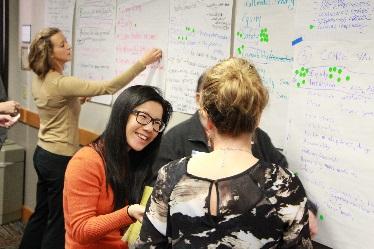

The city council approved a $2.16 million contract with Consor North America last July to design a new water main to replace the one that currently runs under the runway at Tillamook Airport. The project has a budget of $18 million, coming courtesy of the American Recovery Plan Act, and work is expected to begin in 2025 and be completed by September 2026.
Last May, Tillamook was selected to receive a Moda Assist grant, which will help to purchase new ADA accessible equipment for Coatsville Park. The annual grant is given by Moda in conjunction with the Portland Trail Blazers and donates $20 for every assist during a given Blazers’ season to a city to help with the purchase of accessible playground equipment.
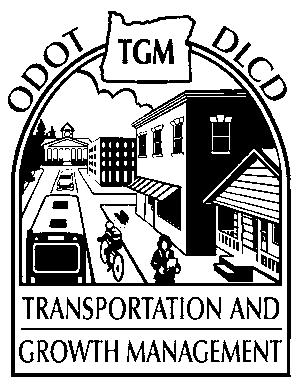
CITY NEWS
Land Use & Transportation Planning Grants and Assistance Planning Grants – Publications Workshops – Development Code Assistance Transportation Plan Assessment – Design Expertise www.oregon.gov/LCD/TGM subscribe to our e-newsletter to stay informed! Transportation and Growth Management Program better ways to better places since 1993 51 www.orcities.org First Quarter 2024 | LOCAL FOCUS
BOARDMAN Community Creates New Motto, Logo
In an effort to promote community engagement and interest in local activities, the Boardman City Council asked for public involvement in crafting a new motto and logo for the city. In midJanuary, it began conducting a community-wide survey to pick the winning motto, with a new logo to be created based on the final selection.
During its December meeting, the city council announced the four finalists in the City Motto Contest. A total of 70 submissions and 47 participants were collected. Each winner was awarded prizes from various businesses around town.
Community winner was Noah Reaves for the suggested motto “Where potential comes to grow.” Riverside Jr./Sr. High winner Seth Hammond offered “Beauty around the Bend.” Mikayla Mickles, Windy River winner, proposed “Where river meets opportunity.” Hadley Coleman, Sam Boardman winner, submitted the motto “Small town, big dreams.”

City Manager Brandon Hammond worked with the finalists to compile additional ideas for the public to vote on in the coming months.
Boardman councilors also reported that they have heard from the Oregon Department of Transportation on an upcoming project to update sidewalk ramps to meet ADA requirements at both freeway intersections.

CITY NEWS
jacobs.com/whatif Follow us @JacobsConnects
#WhatIf
At Jacobs, we think differently about the future. We start with “what if” to surface new possibilities and harness deep technical expertise to bring bold solutions to fruition. 52 | First Quarter 2024 www.orcities.org
What if we showed you how we’re solving Oregon’s greatest challenges by transforming intangible ideas into intelligent solutions for a more connected, sustainable world?
SALEM Grant Funds Street Safety Improvements
Salem recently received a $2.8 million grant from the U.S. Department of Transportation geared towards street safety improvements. The money will support its Vision Zero program, a national movement aiming to reduce and, ideally, eliminate pedestrian deaths and serious injuries.
“We’ve been lobbying our state and federal partners and hoping that something like this would come through,” said Salem Mayor Chris Hoy. “Keeping our streets safe to bike on, walk on and drive on is a huge issue for every growing city. This is going to be a tremendous help in saving the lives of our residents.”

that can be installed, things that really provide the pedestrians and the bicyclists a safer situation.”
In Salem last year, there were 12 deadly collisions and 13 people died. Almost half of the fatalities were pedestrians, according to KOIN. The U.S. Department of Transportation awarded the grant due to the need for the city to navigate future investments for walking, biking and driving within city limits, officials said.
A chunk of the federal money will be used for the “20 is Plenty” neighborhood sign campaign, part of the Vision Zero plan started in Portland five years ago. The rest will go towards installing speed limit signs on residential streets, purchasing speed radar trailers and creating a public education campaign.
“Sometimes you restrict left-turn movements, or you put safety measures in so that pedestrians can start crossing streets before vehicles can start turning,” said Salem Public Works Director Brian Martin. “So, there’s signal timing things, there’s medians
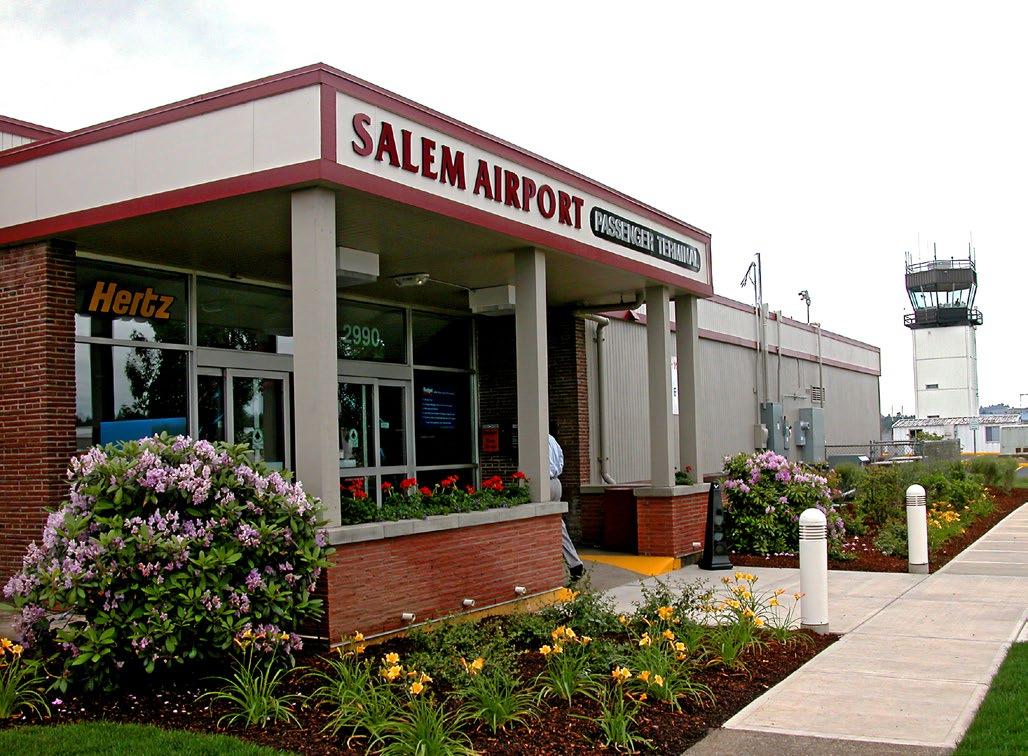
Marion County is also reaching out to the public to find out where it needs to focus additional dollars, such as certain intersections and hazardous turning spots.

CITY NEWS
53 www.orcities.org First Quarter 2024 | LOCAL FOCUS
NYSSA New Projects Worth Millions
About $6 million worth of projects, ranging from a new public works building and infrastructure upgrades to park improvements, are in the works in Nyssa, which has received $5 million in grant
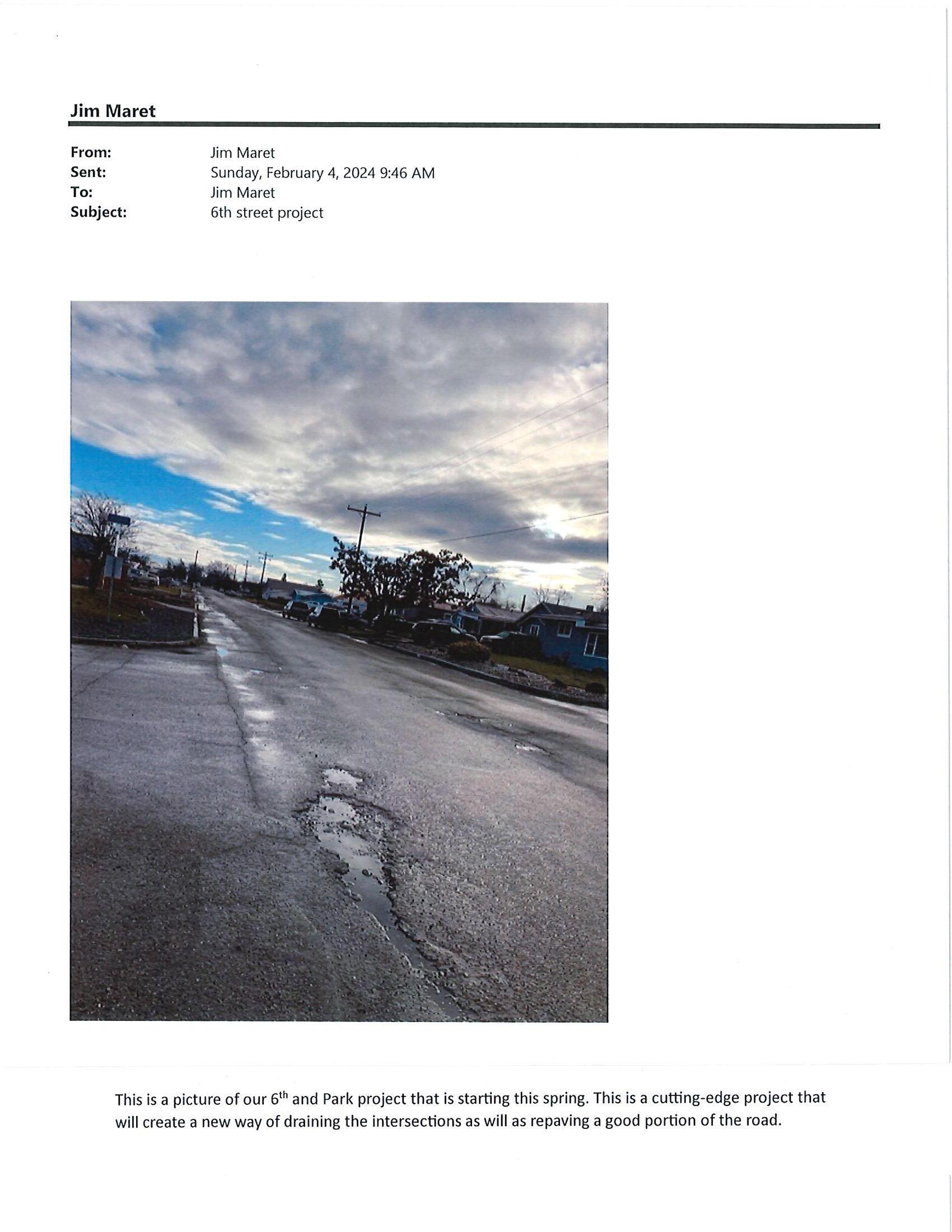
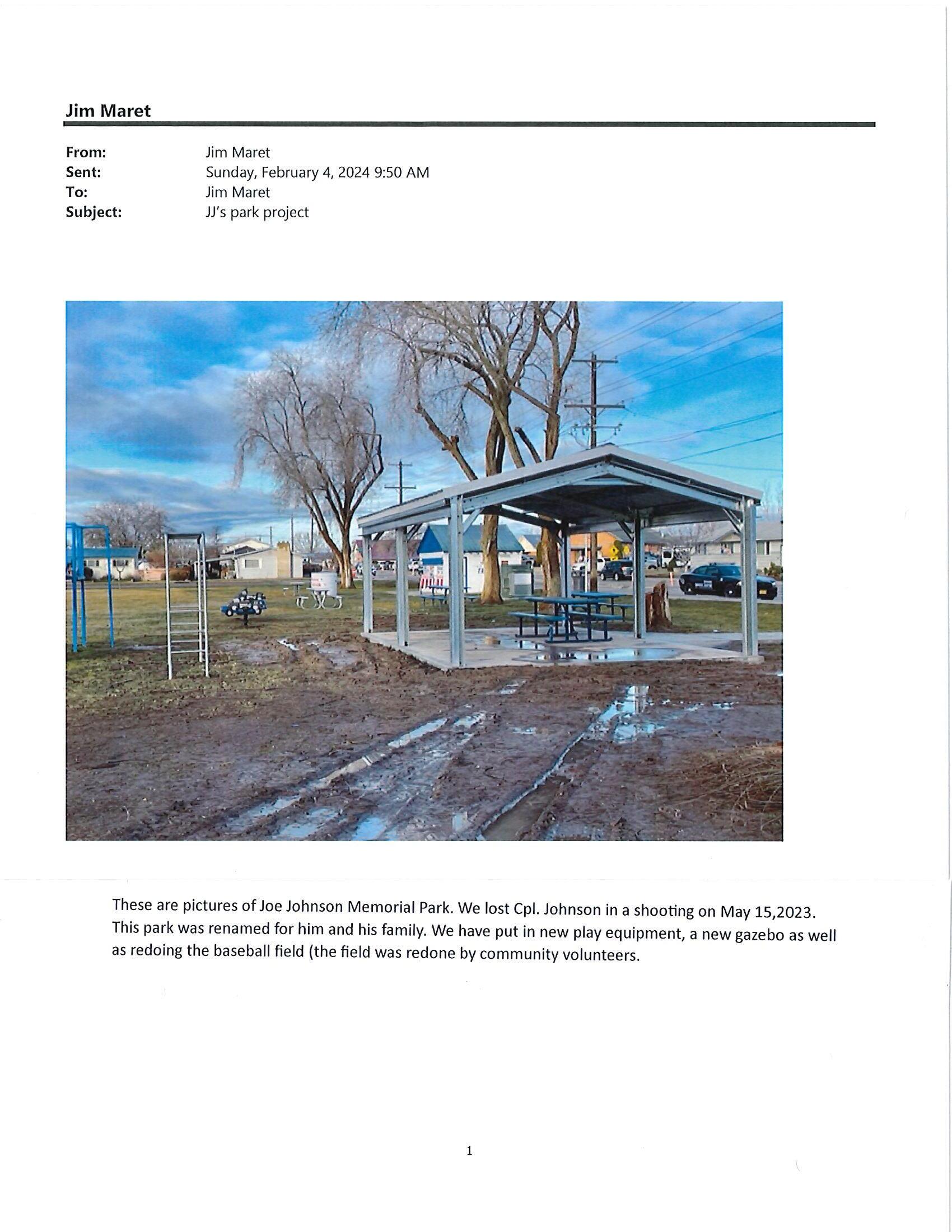
Ferraris
Web: www.ferrarisinvestigations.com
Email: jim@ferrarisinvestigations.com
“Serving Government & Public Sector Clients”
CITY NEWS
Joe Johnson Memorial Park includes new play equipment, new gazebo and redone
Consulting, LLC
Investigations &
JIM FERRARIS, Owner/Principal Phone: 503-939-7899
OR PI
54 | First Quarter 2024 www.orcities.org
License# 74566

Other projects underway include refurbishing two of the city’s drinking water wells, work that is being done with money affiliated with the Treasure Valley Reload Project. The city got $3 million for that project overall. In addition, construction is underway on a new public works building.
Nyssa recently completed upgrades at JJ’s Memorial Park, which now features new playground equipment and a gazebo. The park is named for Nyssa Police Reserve Officer Cpl. Joseph “JJ” Johnson, who was fatally shot while in the line of duty.

The city plans to use a $720,000 grant from the Oregon Parks and Recreation Department plus $180,000 from its own coffers for the renovation of Lions Park. Maret said the city hopes to break ground and complete the project this year.
The renovation includes a new splash pad, playground equipment, bathrooms and a gazebo as well as a lighted walking path. The park already is equipped with a basketball court, covered pavilion and several picnic tables. The city also plans to install two new soccer fields.
“This is one of the biggest efforts by the community to get something nice for Nyssa. I am pretty proud of that,” Maret told the Malheur Enterprise.
Mayor Betty Holcomb said, “I am really excited everything we’ve done is coming together.”
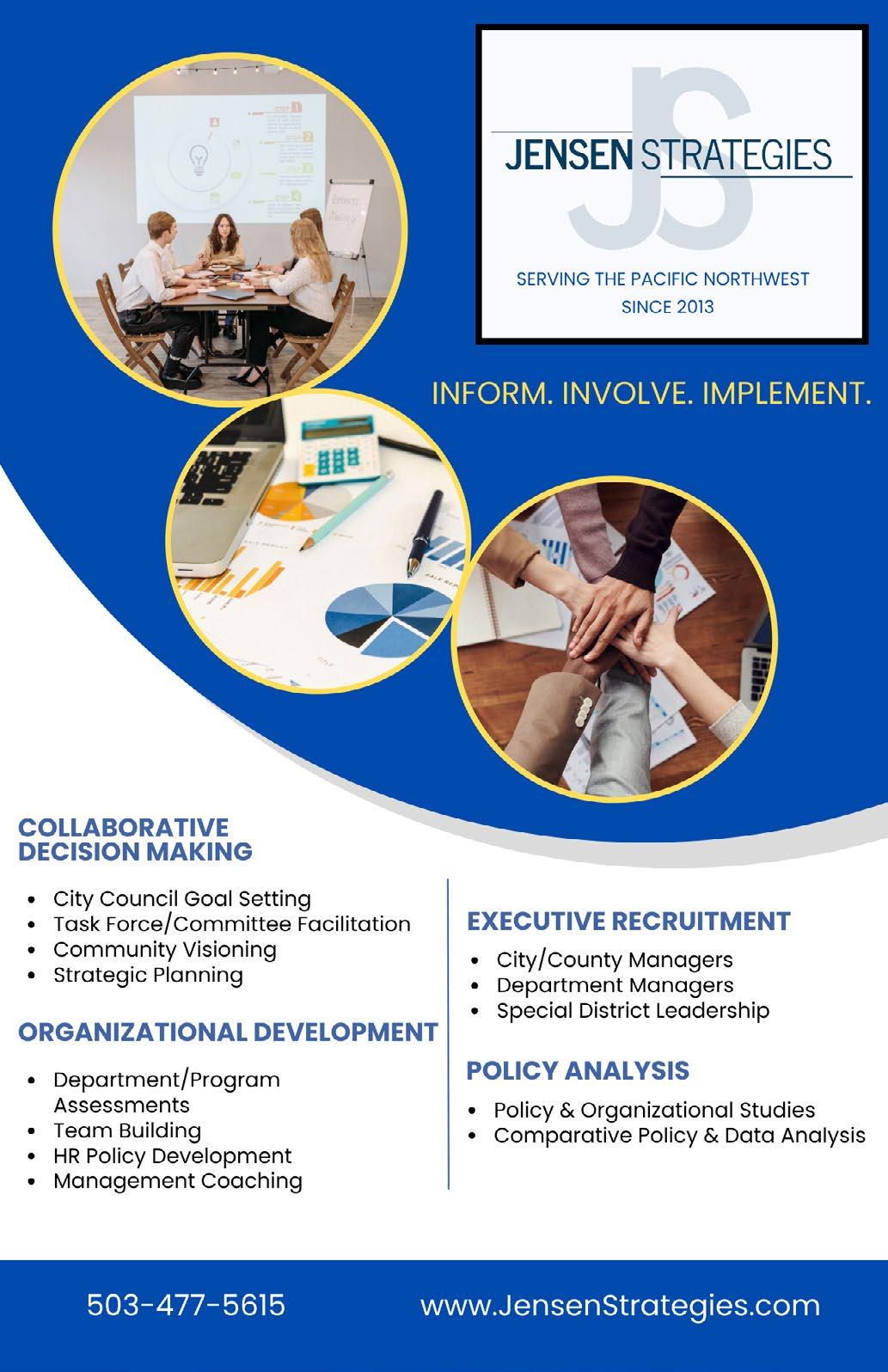
55 www.orcities.org First Quarter 2024 | LOCAL FOCUS
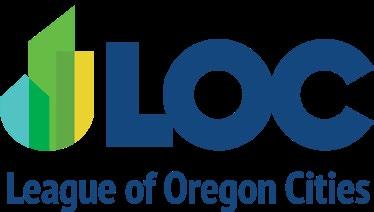
For mailing list changes, please email loc@orcities.org

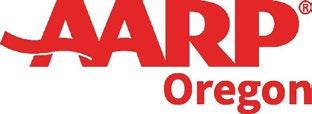





Thank You – 2024 LOC Business Partners PLATINUM GOLD



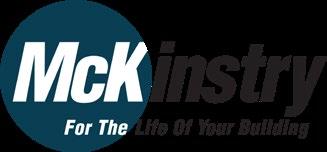



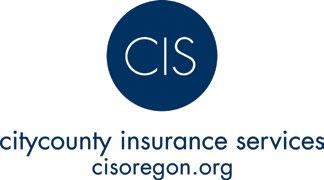


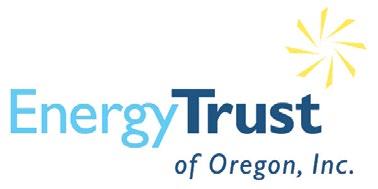

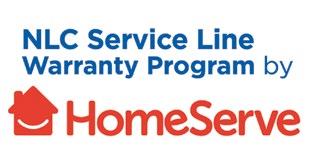

Ameresco
American Leak Detection
American Legal Publishing
Anderson Perry & Associates, Inc.
Applied Concepts, Inc./Stalker Radar
Avista Utilities
Beery, Elsner and Hammond, LLP
BMS Technologies
Collect NW/Southern OR Credit
Cumming Group




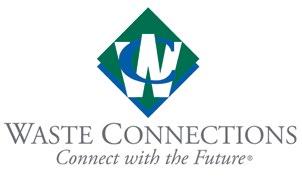



Davey Resource Group
Enterprise
Ferraris Investigations
Hawkins Delafield & Wood LLP
Healthy Sustainable Communities
Jacobs
Jordan Ramis PC
King County Housing Authority
MacDonald-Miller Facility Solutions
Northwest Playground Equipment
Norvo Nordisk
Oregon DAS Procurement Services
Oregon Dept. of Energy
Oregon Dept. of Environmental
Quality - Clean Water State
Revolving Fund
Oregon State University Division of Extension and Engagement
Talbot, Korvola & Warwick, LLP
League of Oregon Cities 1201 Court St. NE Suite 200 Salem, Oregon 97301
RETURN SERVICE REQUESTED












 Dave Drotzmann
LOC President; Mayor, Hermiston
Dave Drotzmann
LOC President; Mayor, Hermiston








































































































































